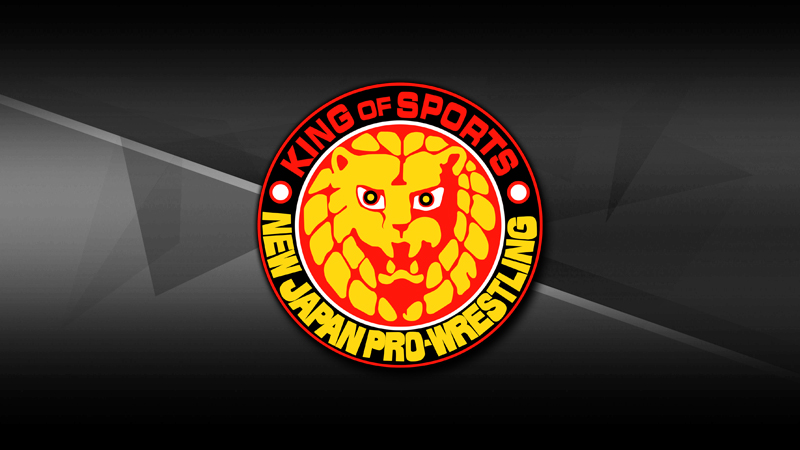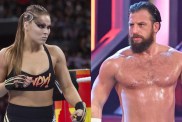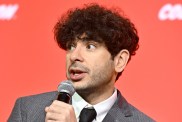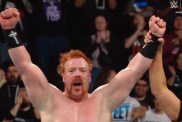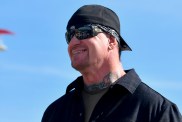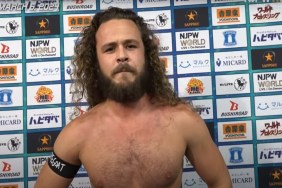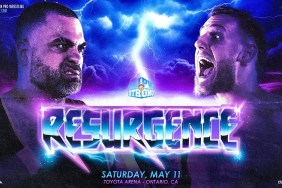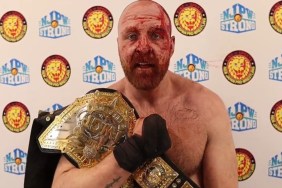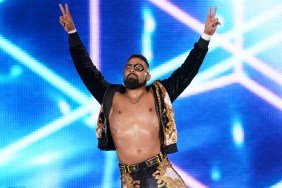NJPW President Harold Meij recently spoke to Uproxx about the importance of NJPW expanding, what the term westernization means to him, what he looks for in a wrestling match, and which match from the upcoming Wrestle Kingdom 13 card excites him the most. Below are some highlights:
Harold Meij On His Wrestling Fandom As A Child:
First of all, you talked about when I was a fan as a kid, so I’ll have to talk a little bit about that… Because I am from Holland, but I moved to Japan because of my father had a job there when I was eight years old. He actually joined a Japanese company at that time, which, in the early seventies, was very rare. I mean, you didn’t work for Japanese companies, let alone work for a Japanese company in Japan. And at that time, the only foreigners living in Japan were either U.S. military people or diplomats… For civilians, it was quite rare.
One of the things that really got me to pro wrestling was at the time, I only spoke Dutch, so I didn’t speak any English, obviously no Japanese, and I went to international school, and everything was in English, of course. But I didn’t even know how to say “yes” or “no” or “hello,” nothing. But one step outside of school, everything was in Japanese. I mean, you think people don’t speak English in Japan now, forty years ago nobody spoke English in Japan. So I had to be totally immersed in both languages all at once, which was quite difficult because, you know, there weren’t many Dutch people around… My father worked for a Japanese company, so he was working Saturdays, a lot on the Sundays, so I didn’t have a lot of time with my parents either.
And so the only TV that I could understand, and my father as well, was wrestling. Because you don’t really need any language to understand what’s going on. I mean, you know, just by seeing it on TV you get the story, you know what’s going on. You know what they’re trying to do, so you don’t need to have the rules explained to you. And I’m sure there were announcers and color commentators at that time as well, but even though I didn’t understand a hundred percent of that, I still got what’s going on. It was one of the few programs that me and my father could also enjoy, so not just the language, but even the age difference between me and my father at the time wasn’t an issue. He could enjoy just as much as I could as a little kid. So that was one of the reasons why I really got into wrestling from that age.
And at that time there weren’t as many wrestlers, of course, as there are today, but the two that really stood out to me, in my mind – one was the Destroyer and the other was Abdullah the Butcher… And I remember those two guys, you know, are almost in every match, and they really stood out, so as a kid I vividly remember those two. So I’d have to say, you know, from my childhood, those would be my favorite wrestlers.
Yeah, that’s right. So that was when I was a kid, obviously, but then, of course, I went overseas again, and obviously, there’s no internet at that time, so wrestling – or Japanese wrestling, kind of faded away from my life. But around ten years ago I started seeing pro wrestling again and I saw how much they had advanced from that time, so from forty years ago. Now we have factions, you know, the costumes are so much more vivid, the moves are so much more sophisticated. I mean, back then they didn’t have like high flyers, or they didn’t really have technical- well, they did have technical wrestling, but I guess it was more power wrestling than it was technical as we have it today, or high flying wasn’t really around at that time… like comical wasn’t around at that time as well. So I think, and then you have the factions these days as well, and so it’s much more sophisticated, and when I saw that about ten years ago, I thought, “Wow, how much wrestling has advanced and become more sophisticated…” That’s how I really got back into it.
Harold Meij On His Favorite Match:
So before we get into which favorite match it is, I do want to mention this – why people like wrestling matches to begin with, and then we can talk about the favorite one… And in my case, I think this has to do – this is a little bit philosophical, but I get it from a lot of the fans in Japan, who basically say the same thing – and that is that as an individual, there are times in your life when you have to fight. And I don’t mean literally fight, but, you know, you have to fight for a cause or fight to protect your family, or yourself, or your opinions, or for your job or your work or whatever you’re doing, but you have to fight. That’s not physical, but more mental… But, when you really come to it, you often don’t have the courage or the guts to actually go through with it.
But when I see people physically fighting and overcoming struggles, like a lot of the wrestlers have, they put a lot of time in it, they overcome a lot of injuries or personal sacrifices or personal, how do you say, struggles, within the wrestling world, and when you see them give it their everything in their match, it actually gives you as a spectator strength and courage to do more than what you might not have done in the past. And I get that from a lot of the fans, that they say the same thing. They say that’s one of the reasons why wrestling is so attractive to them.
So based on that, when you say, “Well, what is your favorite match?” You know, I have to say when I see something like that in the ring that gives me the energy, gives me the strength that I need in whatever I need to do, that would be a very good match. And the one that comes to mind quite recently is the November 3 one, Suzuki vs. Ishii.
Harold Meij On Westernization:
I mean, nobody’s – everybody says, “Oh, you’re trying to do this or trying to do that,” but what is that? What is the Westernization of wrestling? I don’t know. It’s for the fans to decide what that is. But I can tell you, if it’s the definition that I have, which might be very much different from yours or anyone else’s out there – it’s their own definition, I think – but if it’s my definition of what I think Westernization of wrestling is, then we’re trying to do the exact opposite.
I am trying to bring the – I believe that our difference, our uniqueness, is actually the Japanese part of wrestling, the Japanese way of wrestling. Now, it’s very difficult to define what that is too… and again, it’s up to the fans to decide, well, what is the Japanese-ness, then?… But I believe that it’s in our name. We are New Japan Pro Wrestling, so I’m trying to bring the Japanese way, the Japanese way of wrestling, to the global audience. And this has to do much more with the philosophy that we talked about earlier, but also our traditions. It has to do with the way we bring and educate, if you will, our wrestlers… We have great talent. We have great matches.
But yes, if you’re saying, “Oh, you’re trying to Westernize it by bringing more English content,” then yes, we are, because I believe that most of our interviews for example, or most of our videos that explain the match or explain the emotions of the wrestlers before a match, or even post-match comments, yes, most of that is in Japanese. So I am trying to bring more of that content in English, and together with the history, for example the history of the Bullet Club, for example, the history of Chaos, for example, the faction, is something that we will bring out in English, because I want to explain the richness of that history to an audience that may not have been exposed to it as much as Japanese fans. So yes, I’m trying to bring more English content, but I’m not trying to change anything within the ring. I’m actually trying to bring exactly that essence to the Western audience.
And incidentally, you know, we do talk about American-type wrestling, Japanese-type wrestling we’ve been discussing, Mexican, maybe even British – those four might be the big four, but as talent gets exchanged, or as talent moves between promotions and as we, of course, start wrestling overseas and some other promotions are wrestling in Japan, I think the differences between those will start to merge a little bit more so it will be less pointed, in that sense. More like a global standardization, if you will. But no, I’m trying to do the exact opposite, so, I’m trying to bring Japan as is.
Harold Meij On Wrestle Kingdom 13 And His Most Anticipated Match:
I have to say that the Tanahashi vs. Kenny is going to be something special. Because they’re almost – I almost want to say they’re almost opposites, they’re almost two extremes to each other. And if you’ve seen any of the comments that both have given, I mean, Tanahashi, for example, on the one hand, he is the essence of New Japan. He’s almost Mr. New Japan. I mean, he started with New Japan, he was brought up as Young Lion, he was there during the bad times, he was there during the good times. I mean, he’s been taking a lot of initiatives to help the company as well. Not just inside the ring, of course, as a wrestler, but also outside the ring he did a lot of PR. He went to personally sell tickets during our darker times, so it’s really, and he is the epitome, really, of the tradition of New Japan. It’s in his DNA… That’s who he is.
Now, Kenny on the other hand – incredibly high-quality moves, incredible stamina and agility, but he’s almost self-taught. Almost. He didn’t go to the dojo, obviously, so he doesn’t have that part of him. He came from other experiences from the world. He’s wrestled and fought the world, really. So it’s almost, you know, two polar opposites. And yeah, I almost have to say that I almost don’t want to see the outcome of that.
To read this great full interview, click HERE.
NJPW G1 Climax Omega pt 2 Tanahashi Ishii Sabre Kushida Naito Ibushi Suzuki Mysterio Okada Evil LIJ Shibata Sanada Bushi
-
NJPW G1 Climax Finals
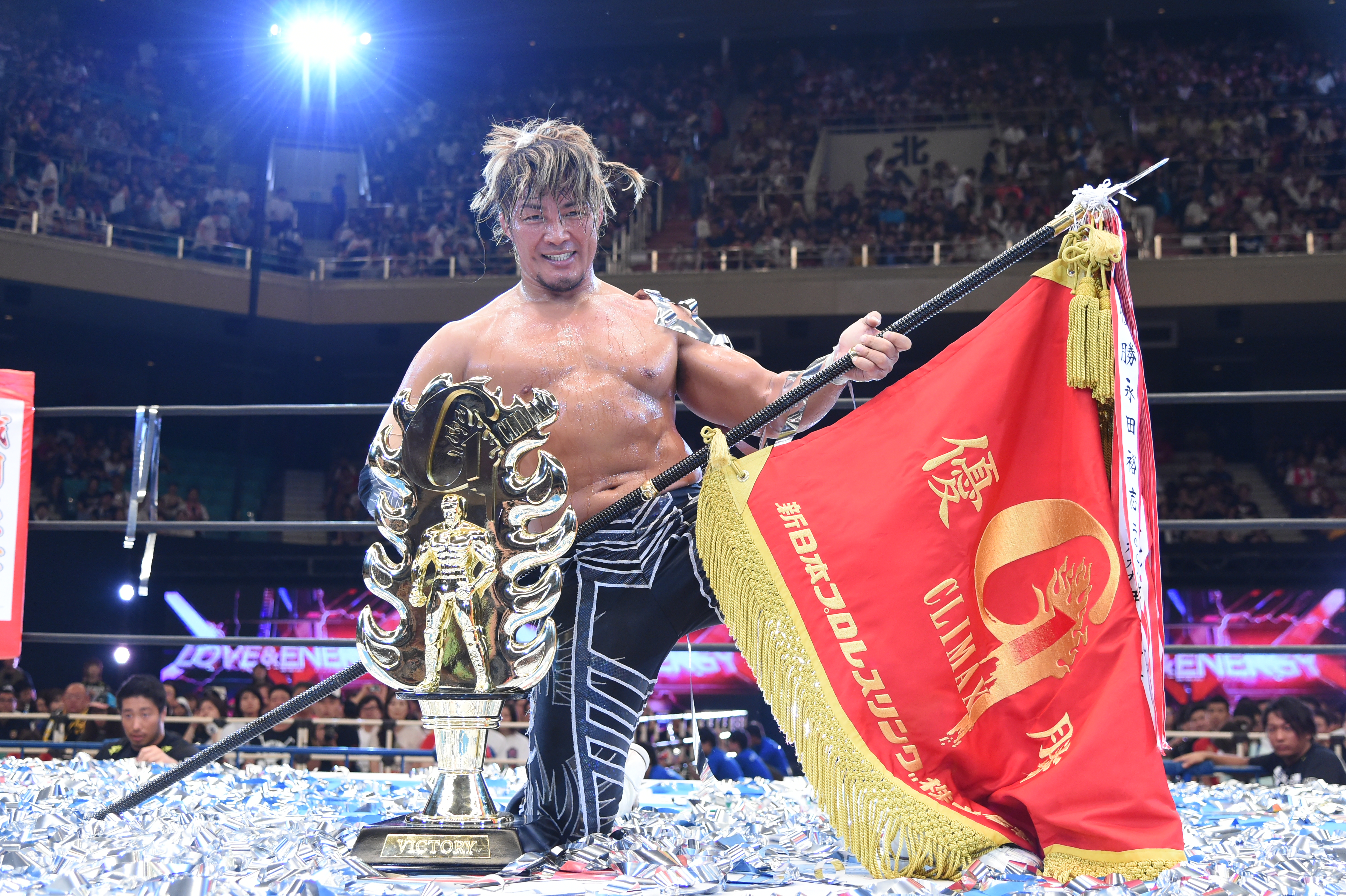
TOKYO, JAPAN - AUGUST 12: Hiroshi Tanahashi celebrates winning the tournament final against Kota Ibushi during the New Japan Pro-Wrestling G1 Climax 28 at Nippon Budokan on August 12, 2018 in Tokyo, Japan. (Photo by New Japan Pro-Wrestling/Getty Images)
-
NJPW G1 Climax Finals
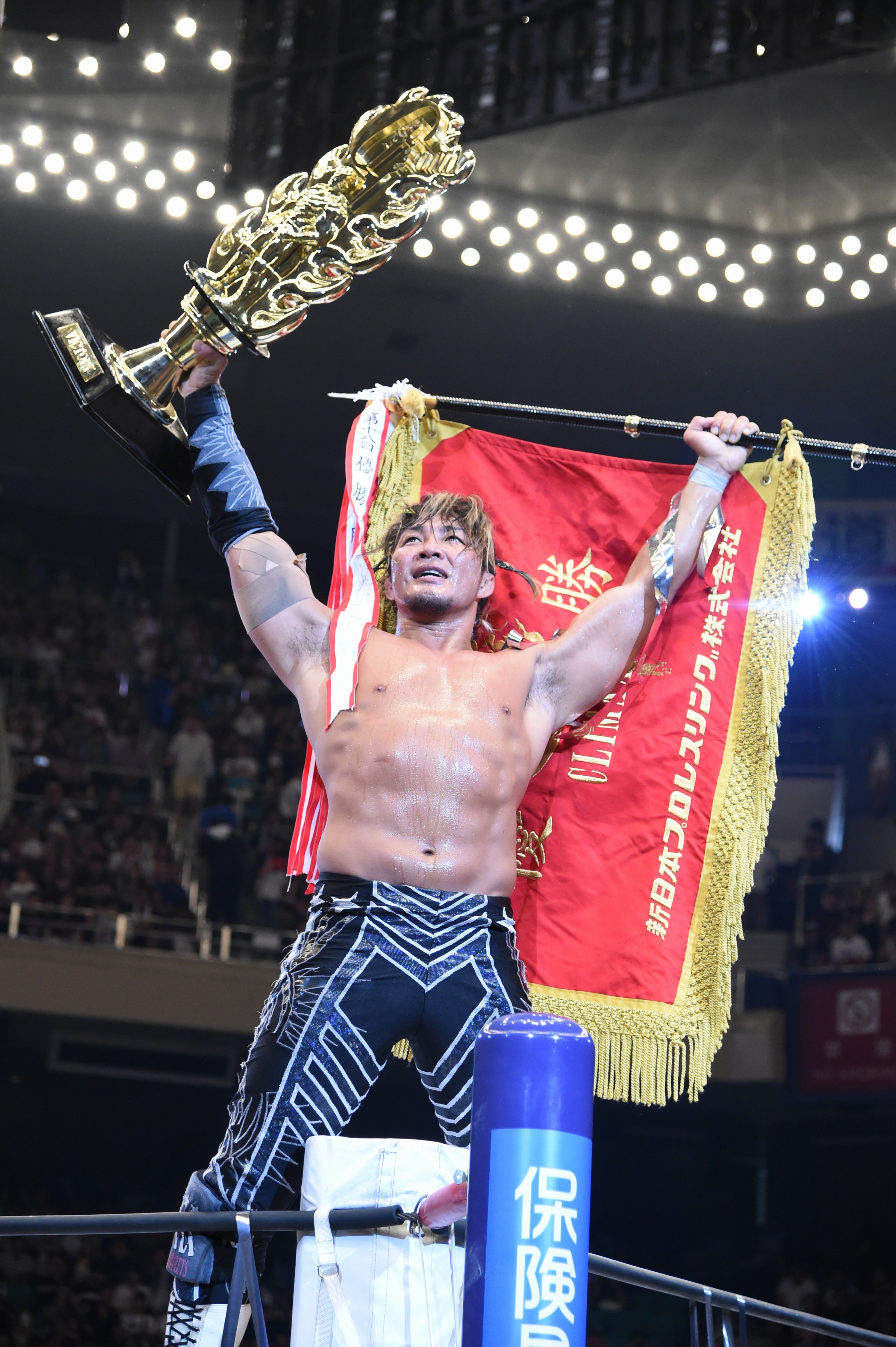
TOKYO, JAPAN - AUGUST 12: Hiroshi Tanahashi celebrates winning the tournament final against Kota Ibushi during the New Japan Pro-Wrestling G1 Climax 28 at Nippon Budokan on August 12, 2018 in Tokyo, Japan. (Photo by New Japan Pro-Wrestling/Getty Images)
-
NJPW G1 Climax Finals
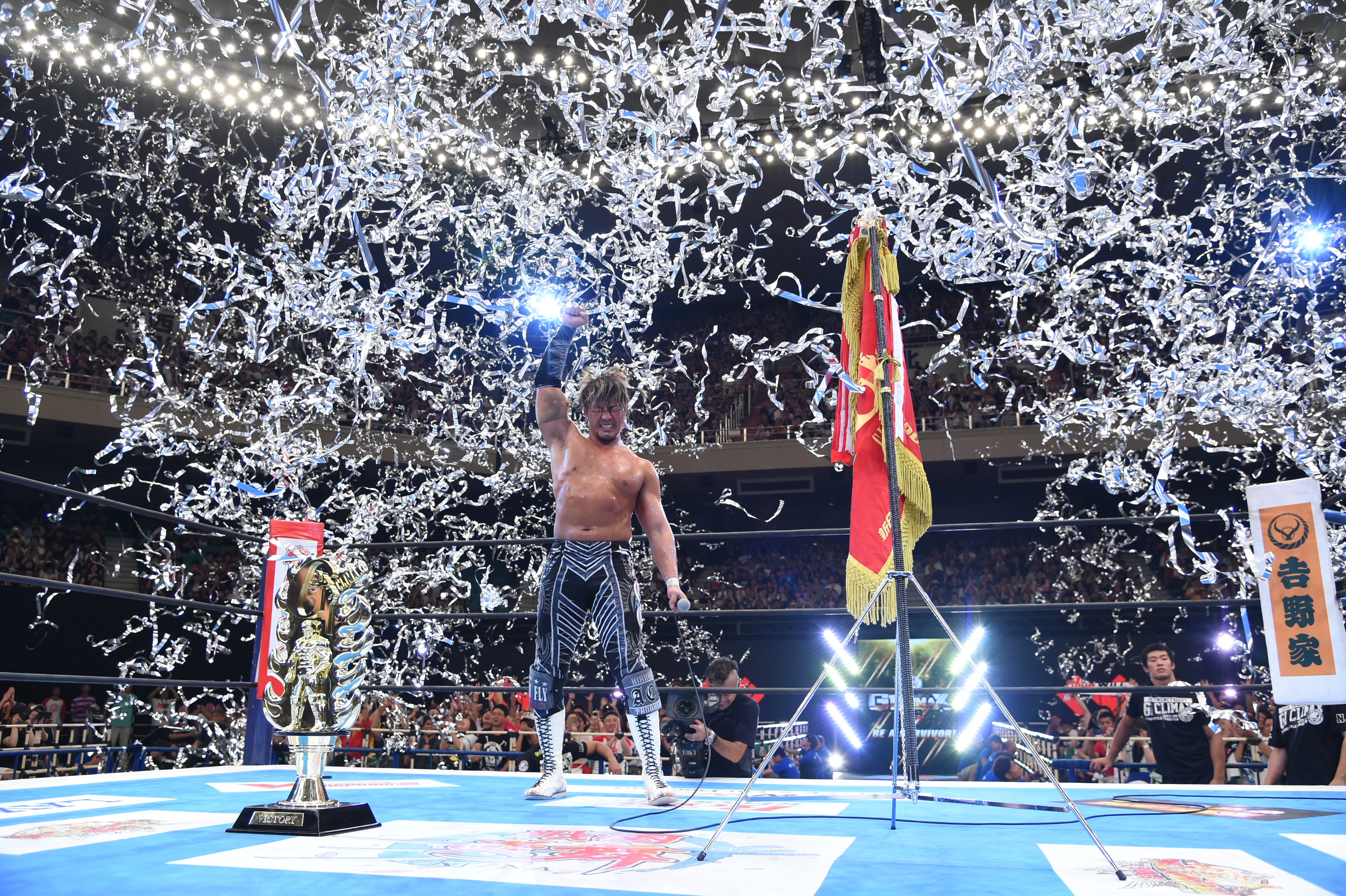
TOKYO, JAPAN - AUGUST 12: Hiroshi Tanahashi celebrates winning the tournament final against Kota Ibushi during the New Japan Pro-Wrestling G1 Climax 28 at Nippon Budokan on August 12, 2018 in Tokyo, Japan. (Photo by New Japan Pro-Wrestling/Getty Images)
-
NJPW G1 Climax Finals
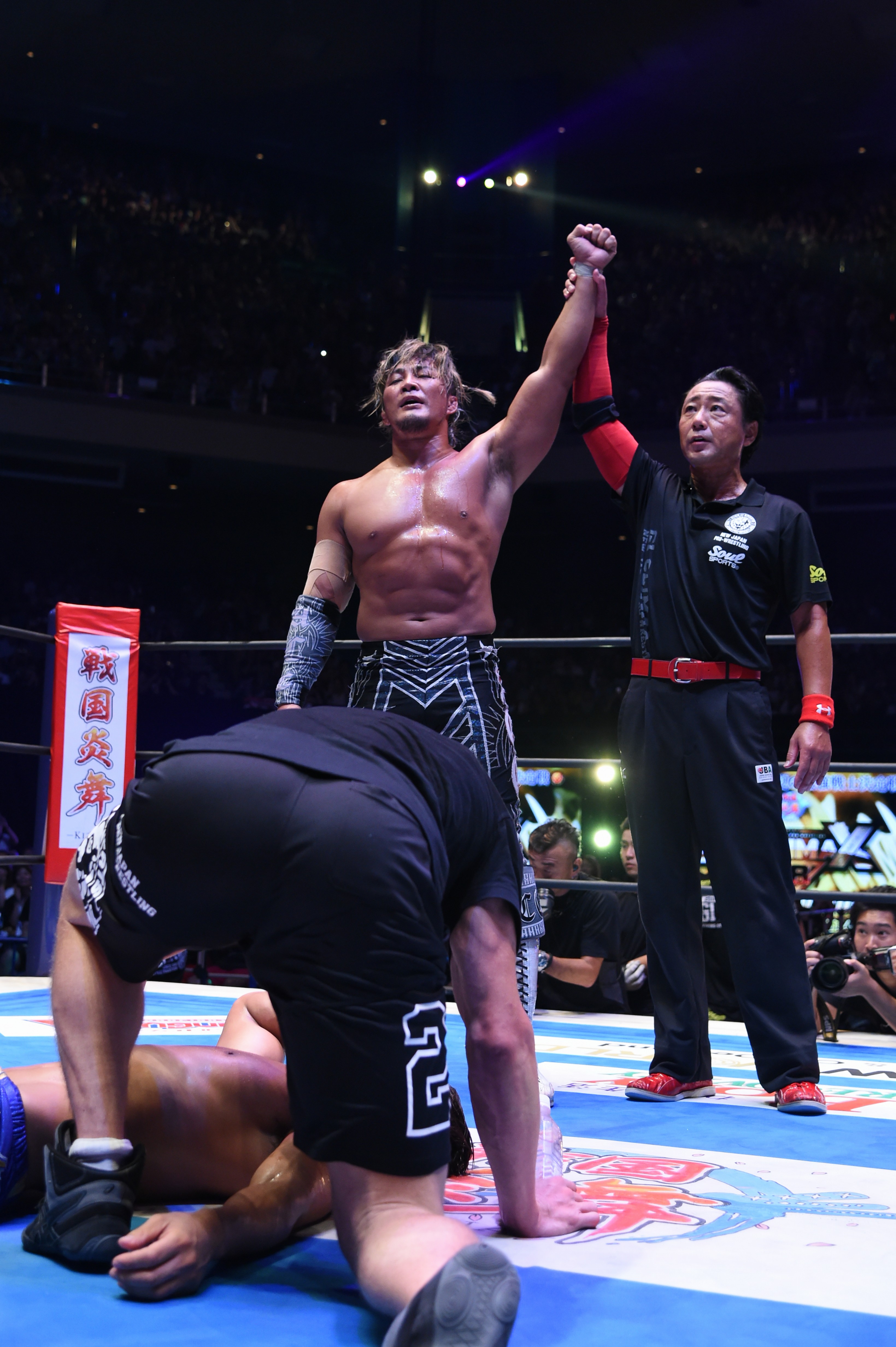
TOKYO, JAPAN - AUGUST 12: Hiroshi Tanahashi celebrates winning the tournament final during the New Japan Pro-Wrestling G1 Climax 28 at Nippon Budokan on August 12, 2018 in Tokyo, Japan. (Photo by New Japan Pro-Wrestling/Getty Images)
-
NJPW G1 Climax Finals
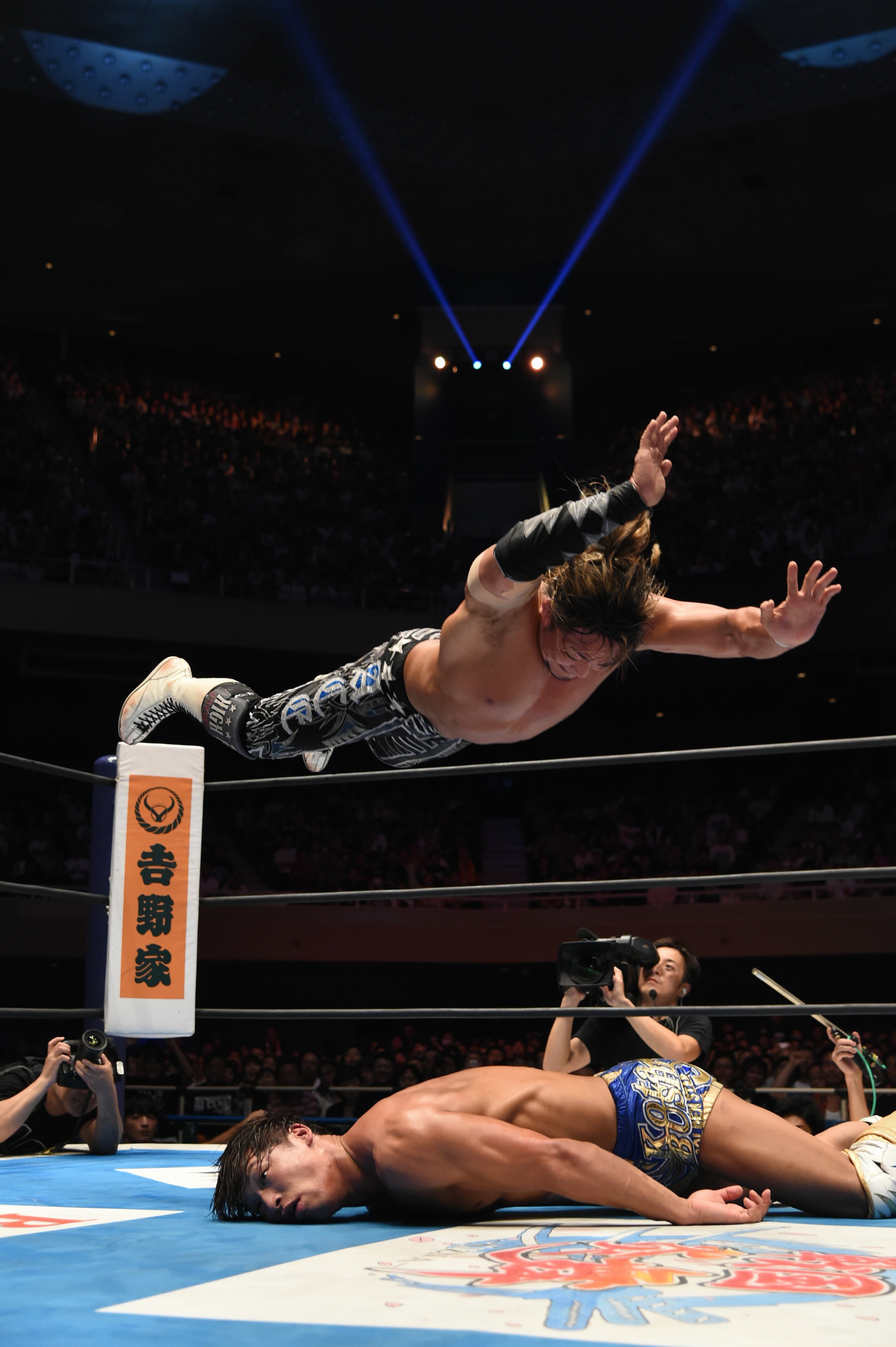
TOKYO, JAPAN - AUGUST 12: Hiroshi Tanahashi dives on Kota Ibushi to win by a fall in the tournament final during the New Japan Pro-Wrestling G1 Climax 28 at Nippon Budokan on August 12, 2018 in Tokyo, Japan. (Photo by New Japan Pro-Wrestling/Getty Images)
-
NJPW G1 Climax Finals
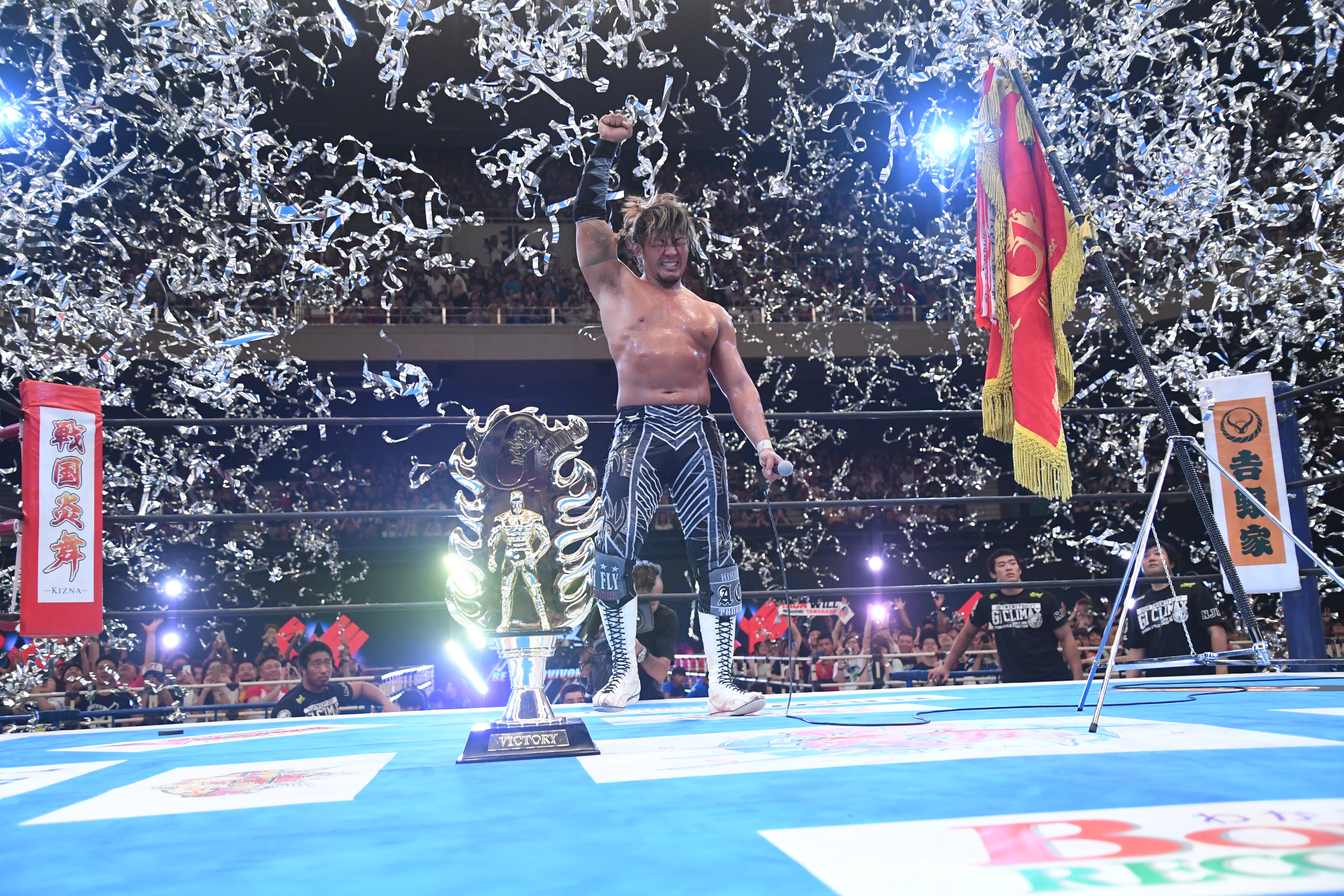
TOKYO, JAPAN - AUGUST 12: Hiroshi Tanahashi celebrates winning the tournament final against Kota Ibushi during the New Japan Pro-Wrestling G1 Climax 28 at Nippon Budokan on August 12, 2018 in Tokyo, Japan. (Photo by New Japan Pro-Wrestling/Getty Images)
-
NJPW G1 Climax Finals
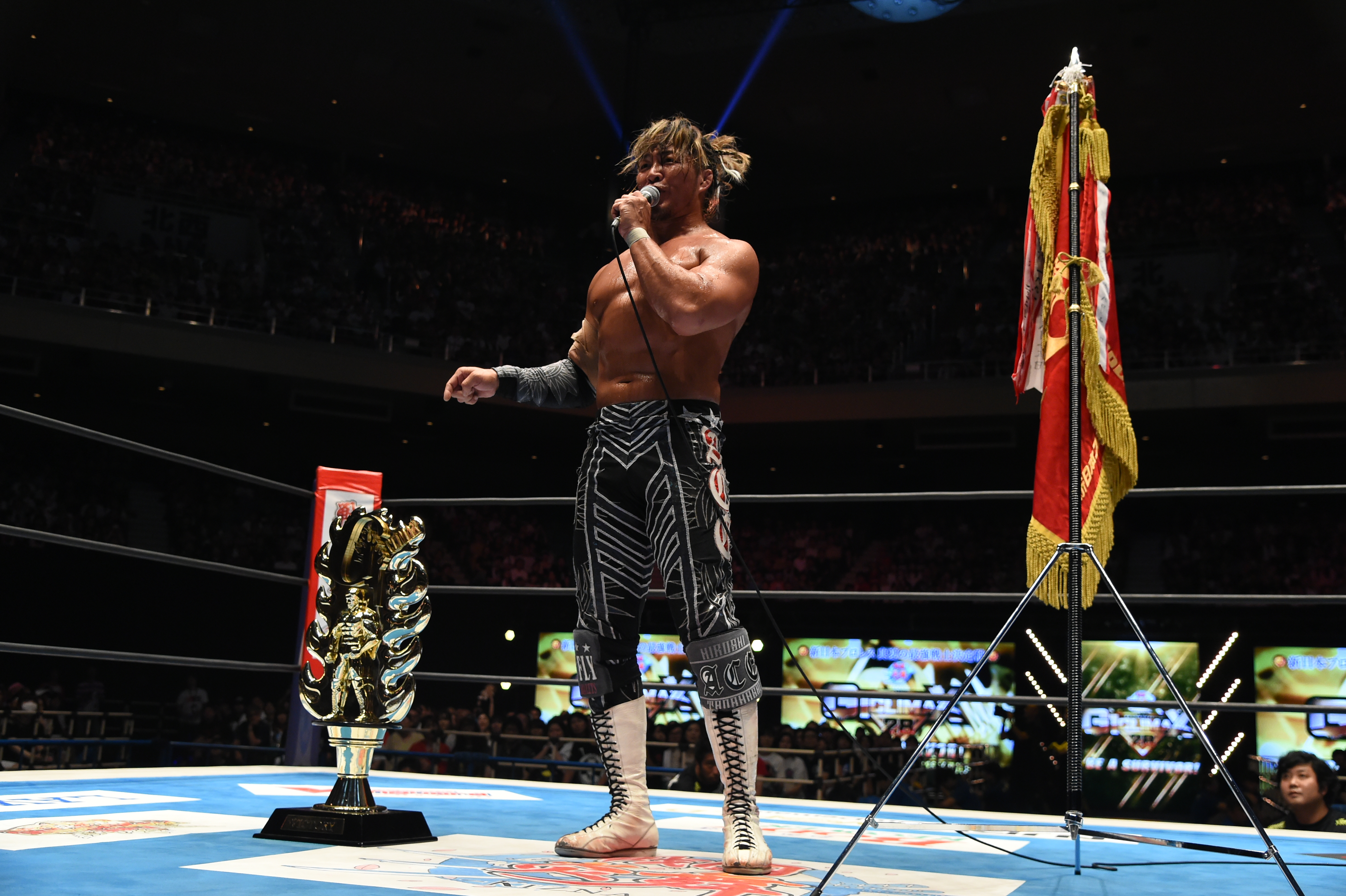
TOKYO, JAPAN - AUGUST 12: Hiroshi Tanahashi celebrates winning the tournament final against Kota Ibushi during the New Japan Pro-Wrestling G1 Climax 28 at Nippon Budokan on August 12, 2018 in Tokyo, Japan. (Photo by New Japan Pro-Wrestling/Getty Images)
-
NJPW G1 Climax Finals
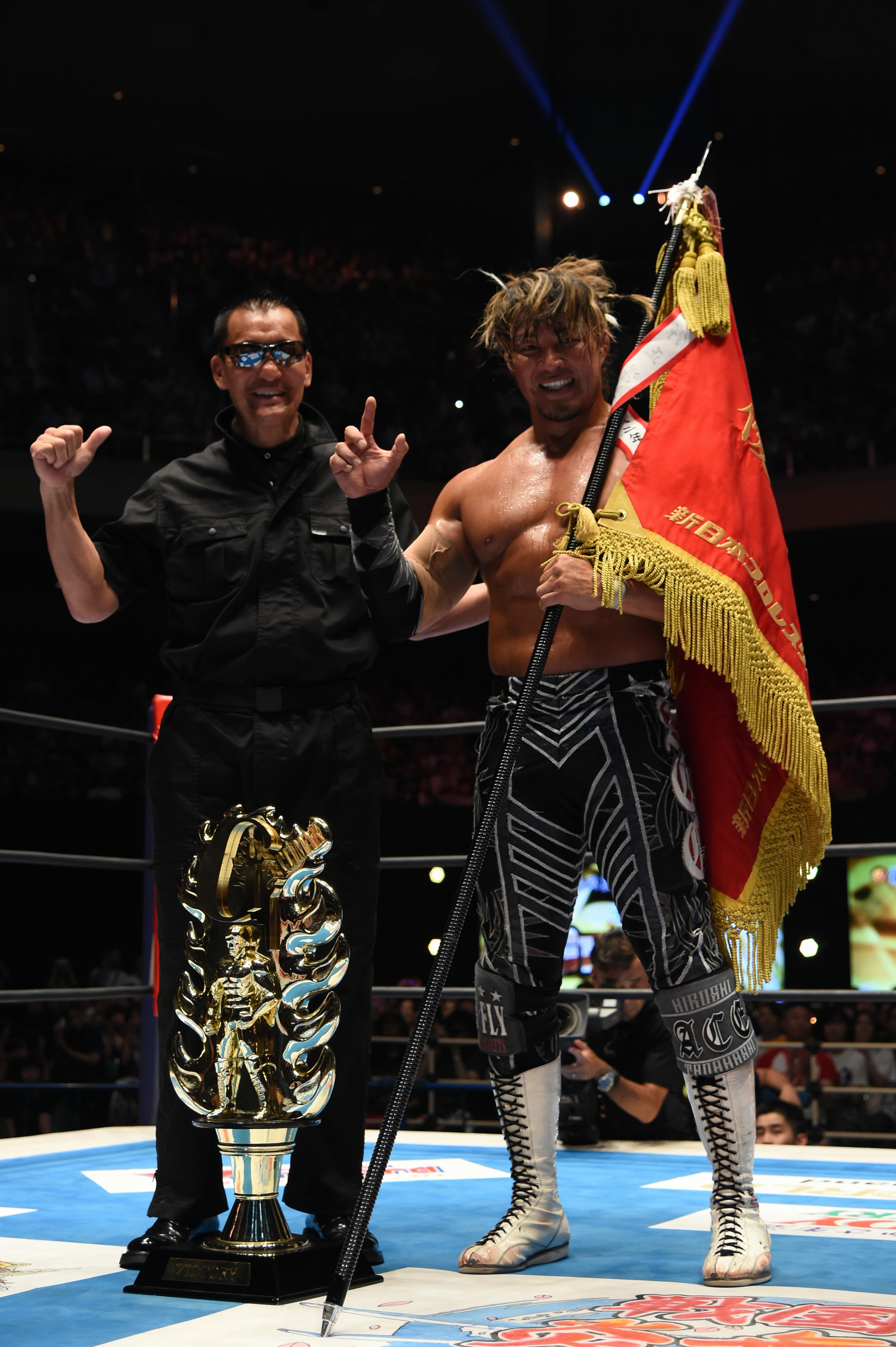
TOKYO, JAPAN - AUGUST 12: Winner Hiroshi Tanahashi (R) poses with Masahiro Chono (L) after winning the tournament final during the New Japan Pro-Wrestling G1 Climax 28 at Nippon Budokan on August 12, 2018 in Tokyo, Japan. (Photo by New Japan Pro-Wrestling/Getty Images)
-
NJPW G1 Climax Finals
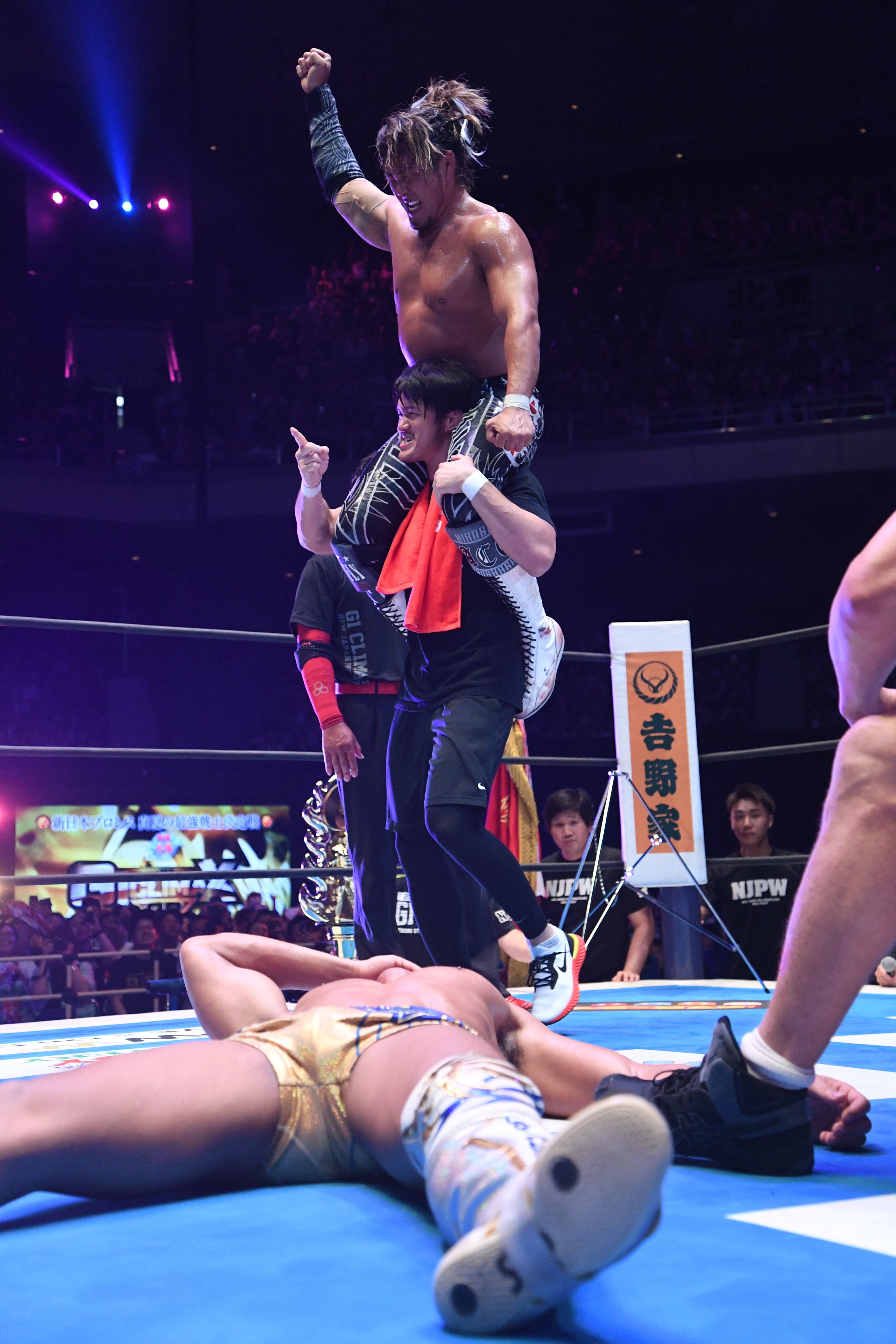
TOKYO, JAPAN - AUGUST 12: Hiroshi Tanahashi celebrates winning the tournament final during the New Japan Pro-Wrestling G1 Climax 28 at Nippon Budokan on August 12, 2018 in Tokyo, Japan. (Photo by New Japan Pro-Wrestling/Getty Images)
-
NJPW G1 Climax Finals
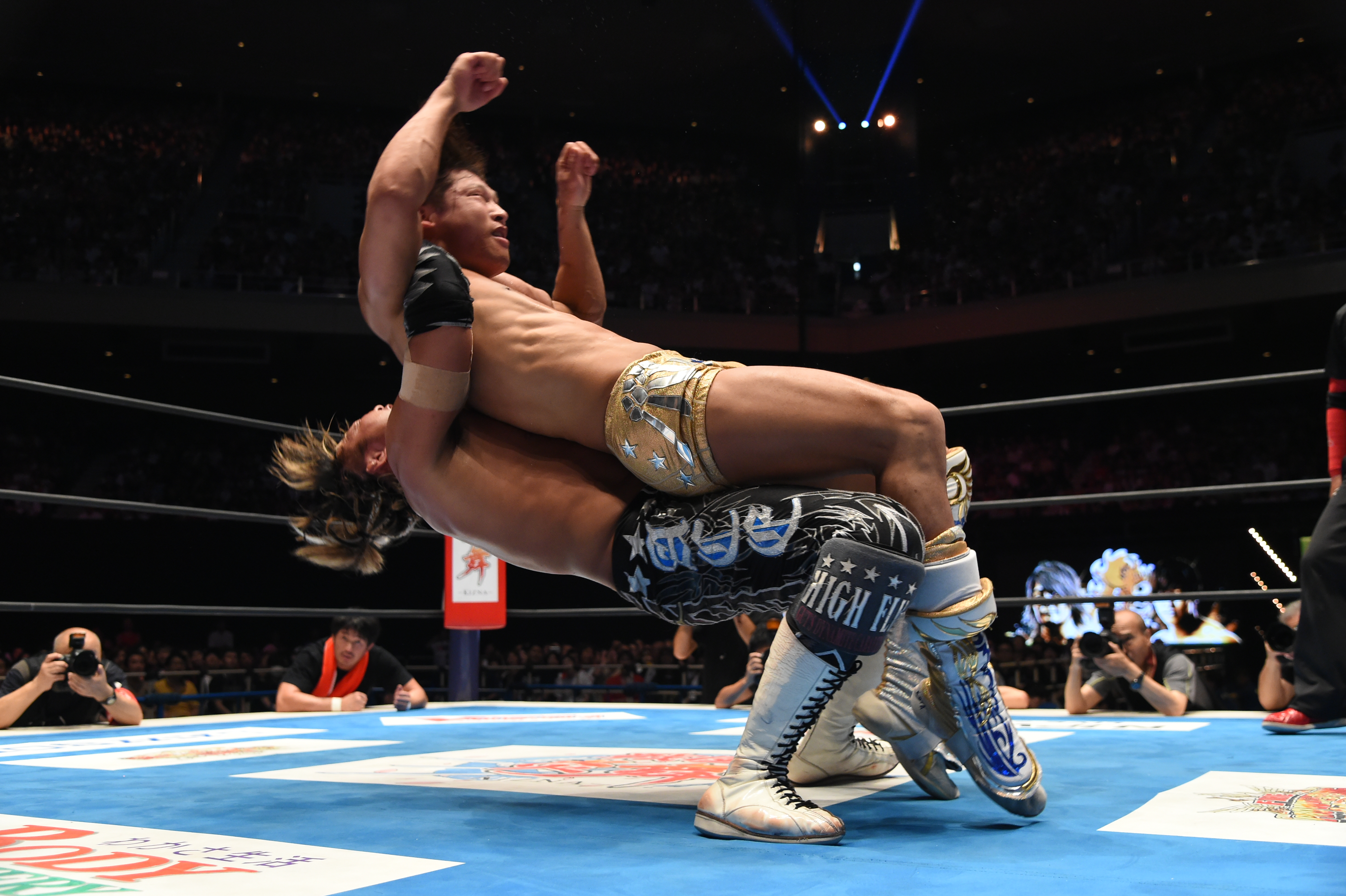
TOKYO, JAPAN - AUGUST 12: Hiroshi Tanahashi and Kota Ibushi compete in the tournament final during the New Japan Pro-Wrestling G1 Climax 28 at Nippon Budokan on August 12, 2018 in Tokyo, Japan. (Photo by New Japan Pro-Wrestling/Getty Images)
-
NJPW G1 Climax Finals
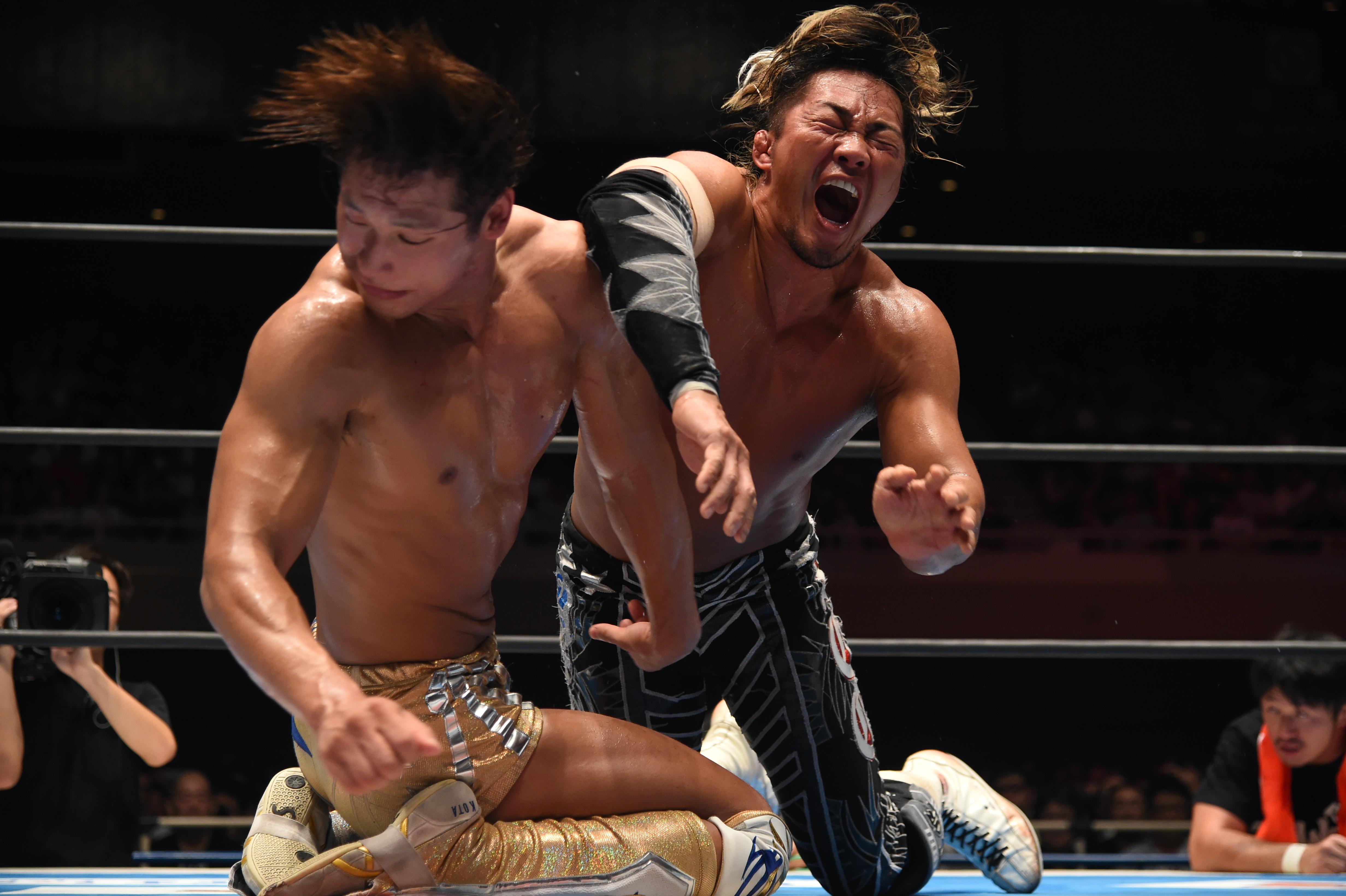
TOKYO, JAPAN - AUGUST 12: Hiroshi Tanahashi and Kota Ibushi compete in the tournament final during the New Japan Pro-Wrestling G1 Climax 28 at Nippon Budokan on August 12, 2018 in Tokyo, Japan. (Photo by New Japan Pro-Wrestling/Getty Images)
-
NJPW G1 Climax Finals
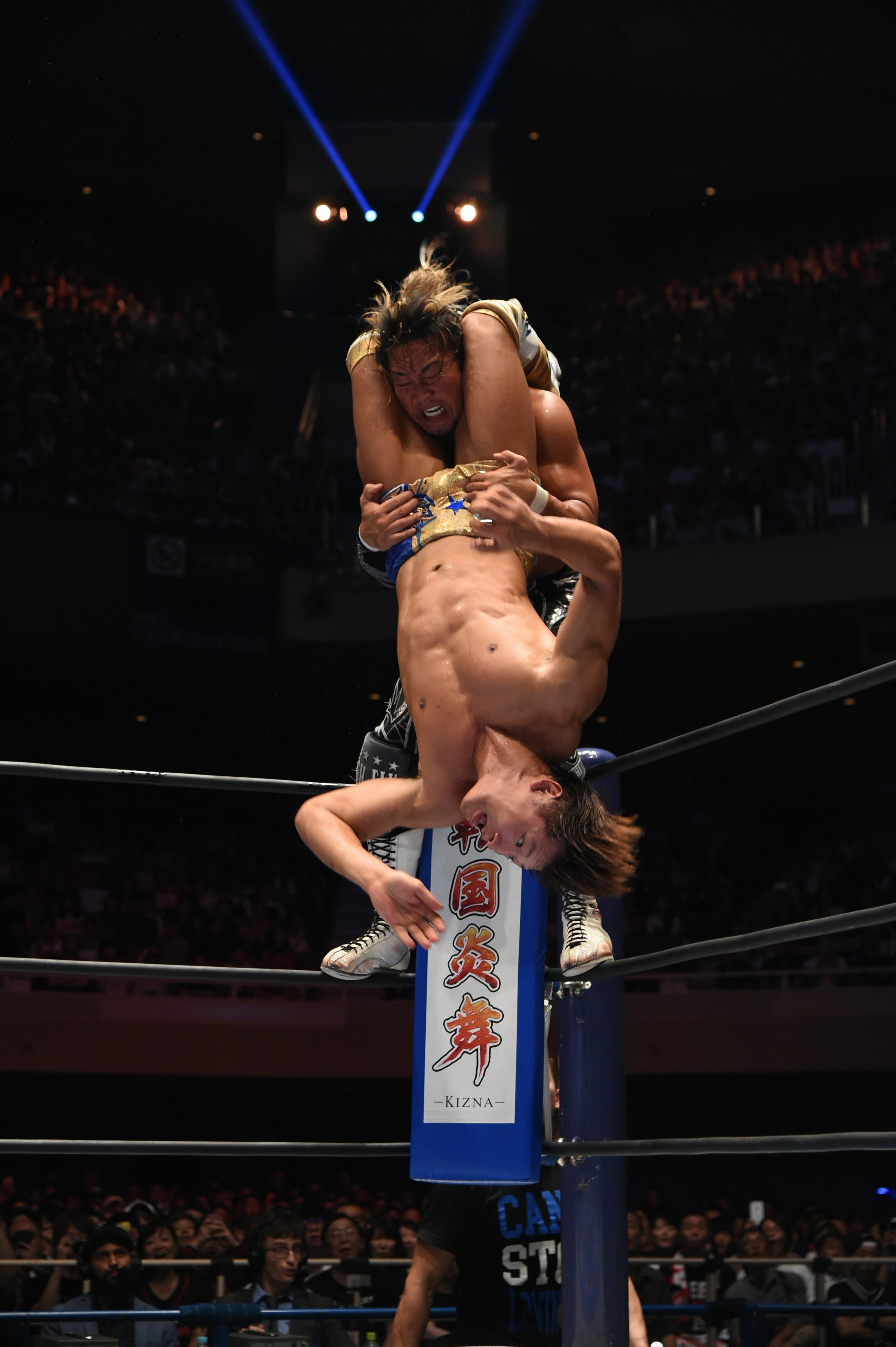
TOKYO, JAPAN - AUGUST 12: Hiroshi Tanahashi and Kota Ibushi compete in the tournament final during the New Japan Pro-Wrestling G1 Climax 28 at Nippon Budokan on August 12, 2018 in Tokyo, Japan. (Photo by New Japan Pro-Wrestling/Getty Images)
-
NJPW G1 Climax Finals
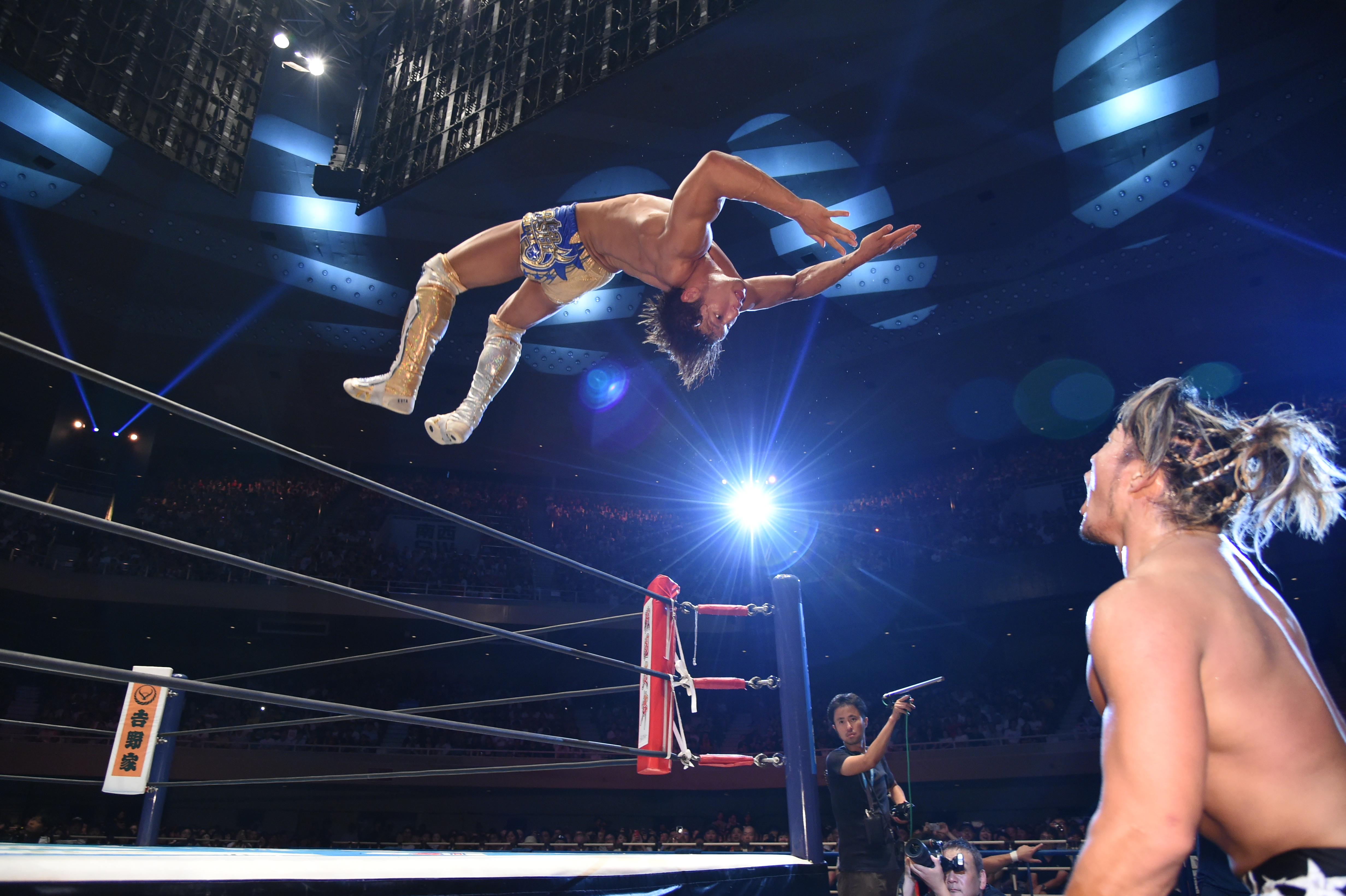
TOKYO, JAPAN - AUGUST 12: Hiroshi Tanahashi and Kota Ibushi compete in the tournament final during the New Japan Pro-Wrestling G1 Climax 28 at Nippon Budokan on August 12, 2018 in Tokyo, Japan. (Photo by New Japan Pro-Wrestling/Getty Images)
-
NJPW G1 Climax Finals
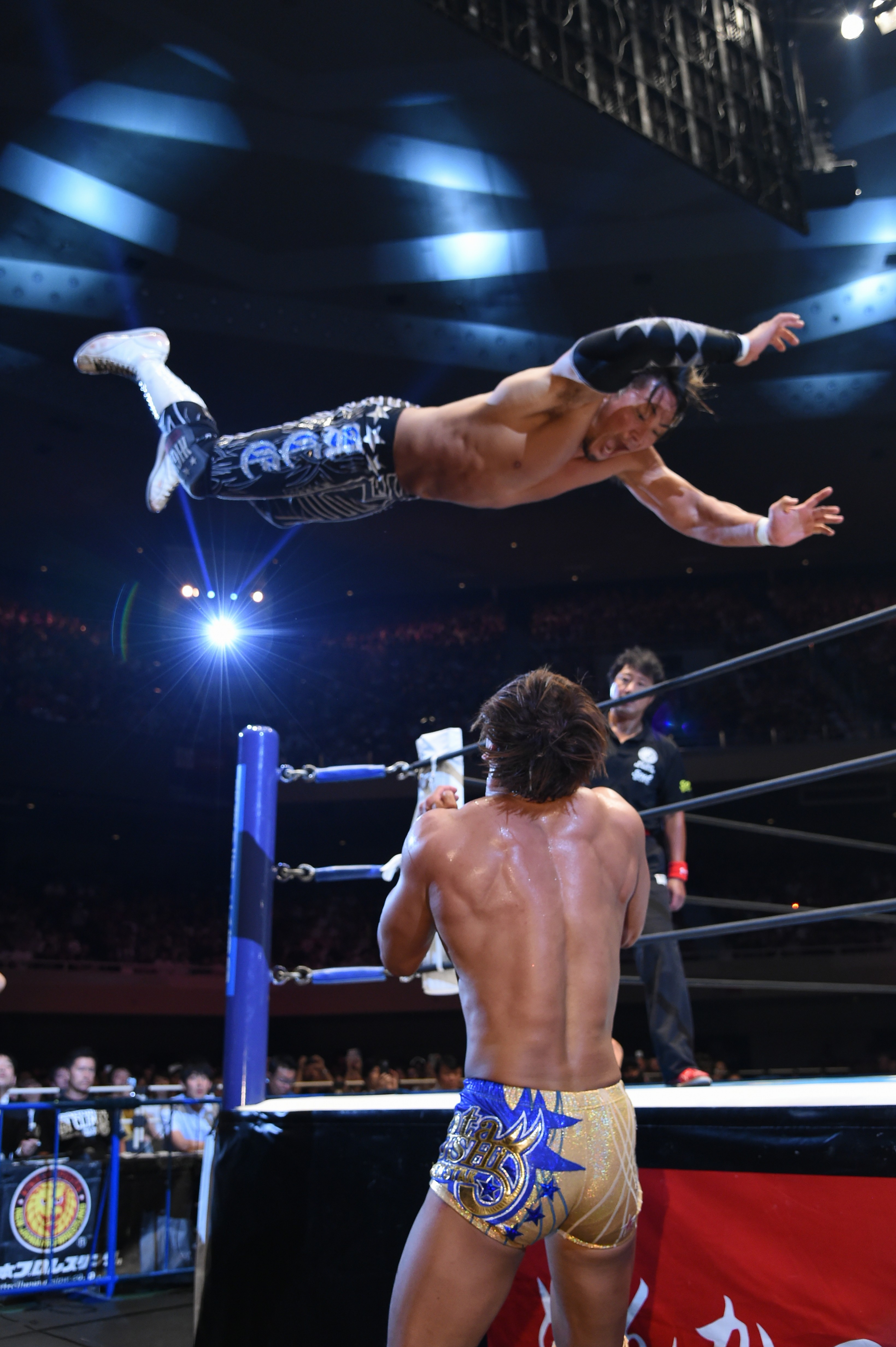
TOKYO, JAPAN - AUGUST 12: Hiroshi Tanahashi and Kota Ibushi compete in the tournament final during the New Japan Pro-Wrestling G1 Climax 28 at Nippon Budokan on August 12, 2018 in Tokyo, Japan. (Photo by New Japan Pro-Wrestling/Getty Images)
-
NJPW G1 Climax Finals
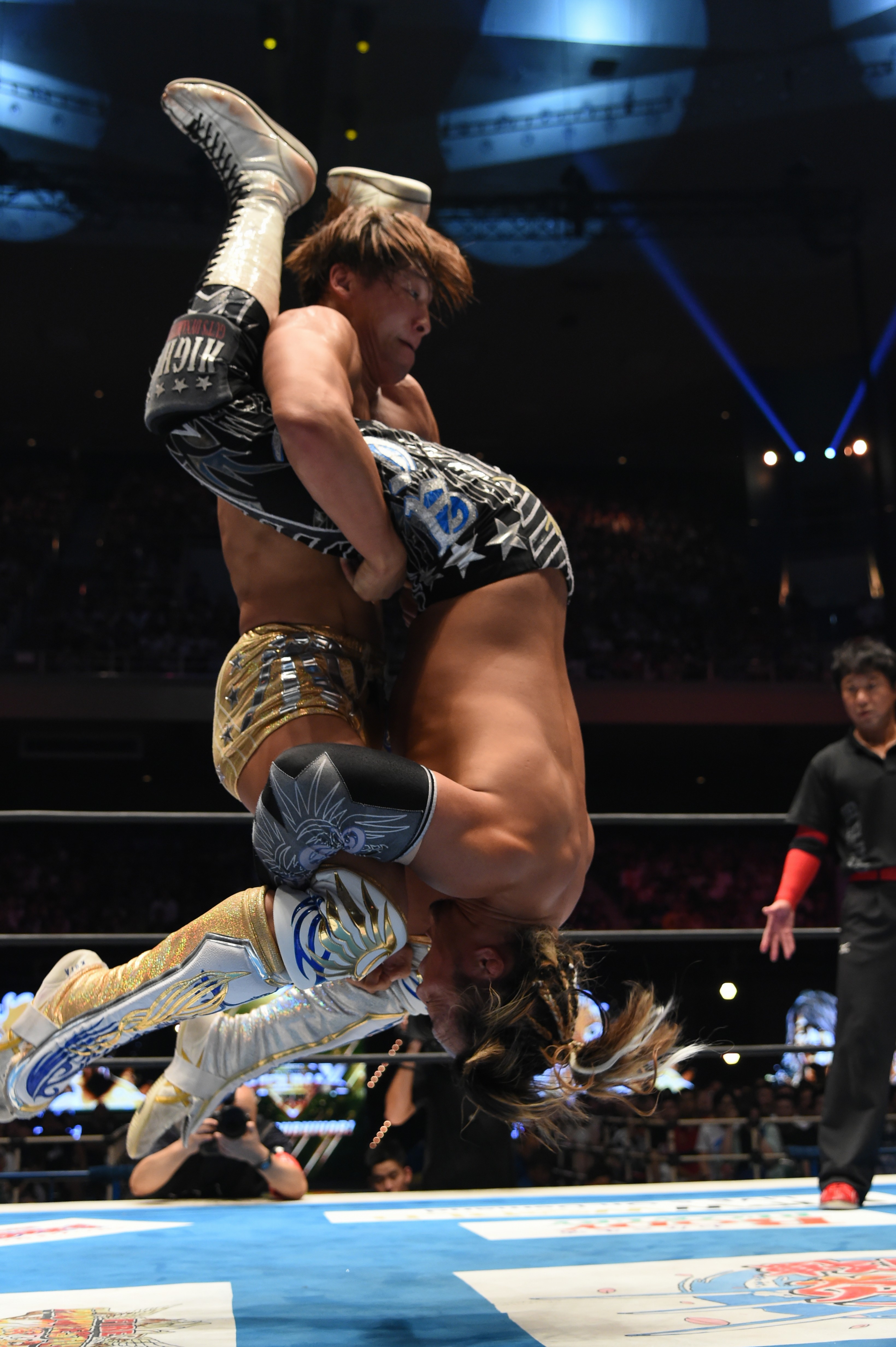
TOKYO, JAPAN - AUGUST 12: Hiroshi Tanahashi and Kota Ibushi compete in the tournament final during the New Japan Pro-Wrestling G1 Climax 28 at Nippon Budokan on August 12, 2018 in Tokyo, Japan. (Photo by New Japan Pro-Wrestling/Getty Images)
-
NJPW G1 Climax Finals
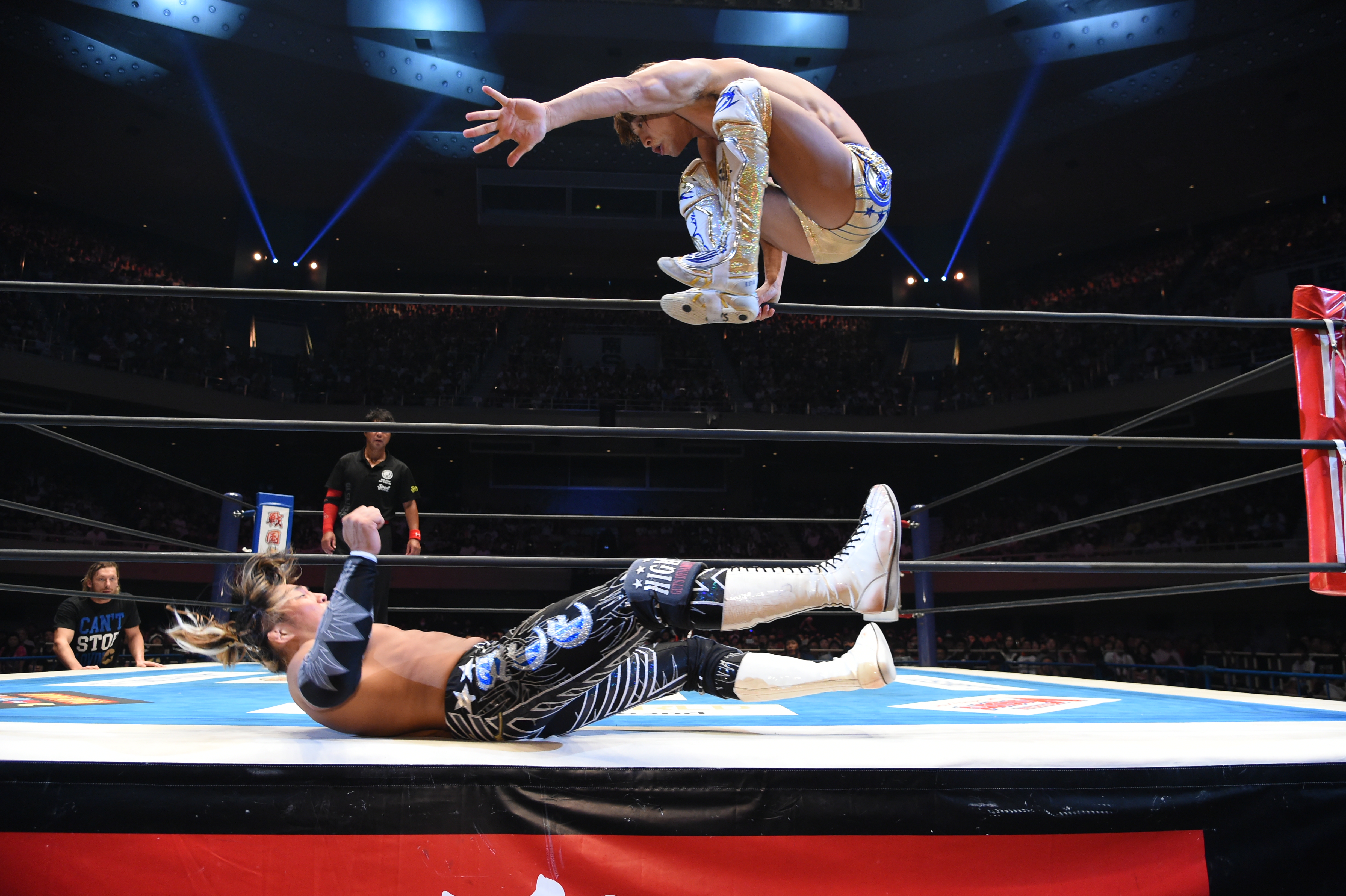
TOKYO, JAPAN - AUGUST 12: Hiroshi Tanahashi and Kota Ibushi compete in the tournament final during the New Japan Pro-Wrestling G1 Climax 28 at Nippon Budokan on August 12, 2018 in Tokyo, Japan. (Photo by New Japan Pro-Wrestling/Getty Images)
-
NJPW G1 Climax Finals
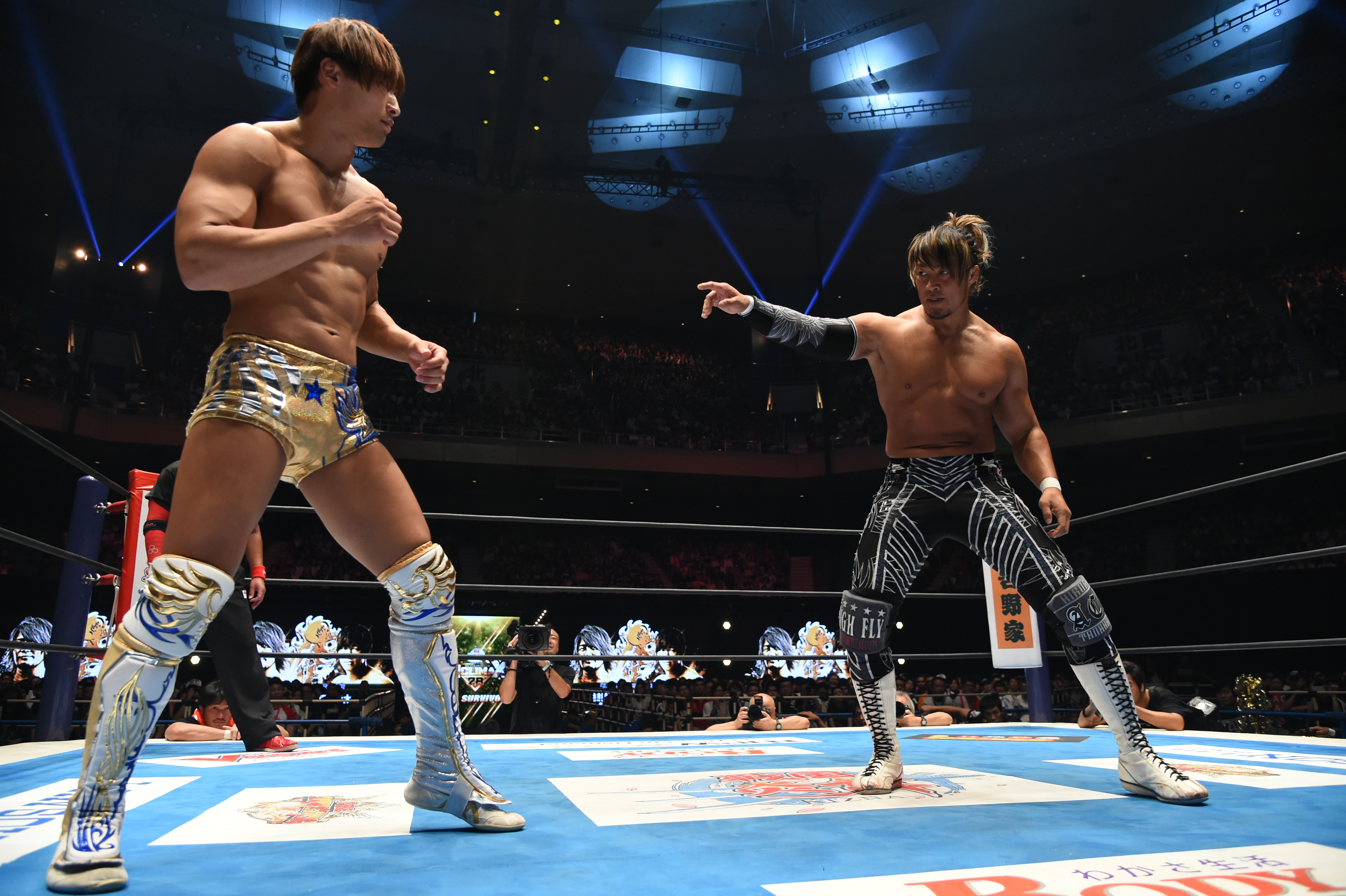
TOKYO, JAPAN - AUGUST 12: Hiroshi Tanahashi and Kota Ibushi compete in the tournament final during the New Japan Pro-Wrestling G1 Climax 28 at Nippon Budokan on August 12, 2018 in Tokyo, Japan. (Photo by New Japan Pro-Wrestling/Getty Images)
-
NJPW G1 Climax Finals
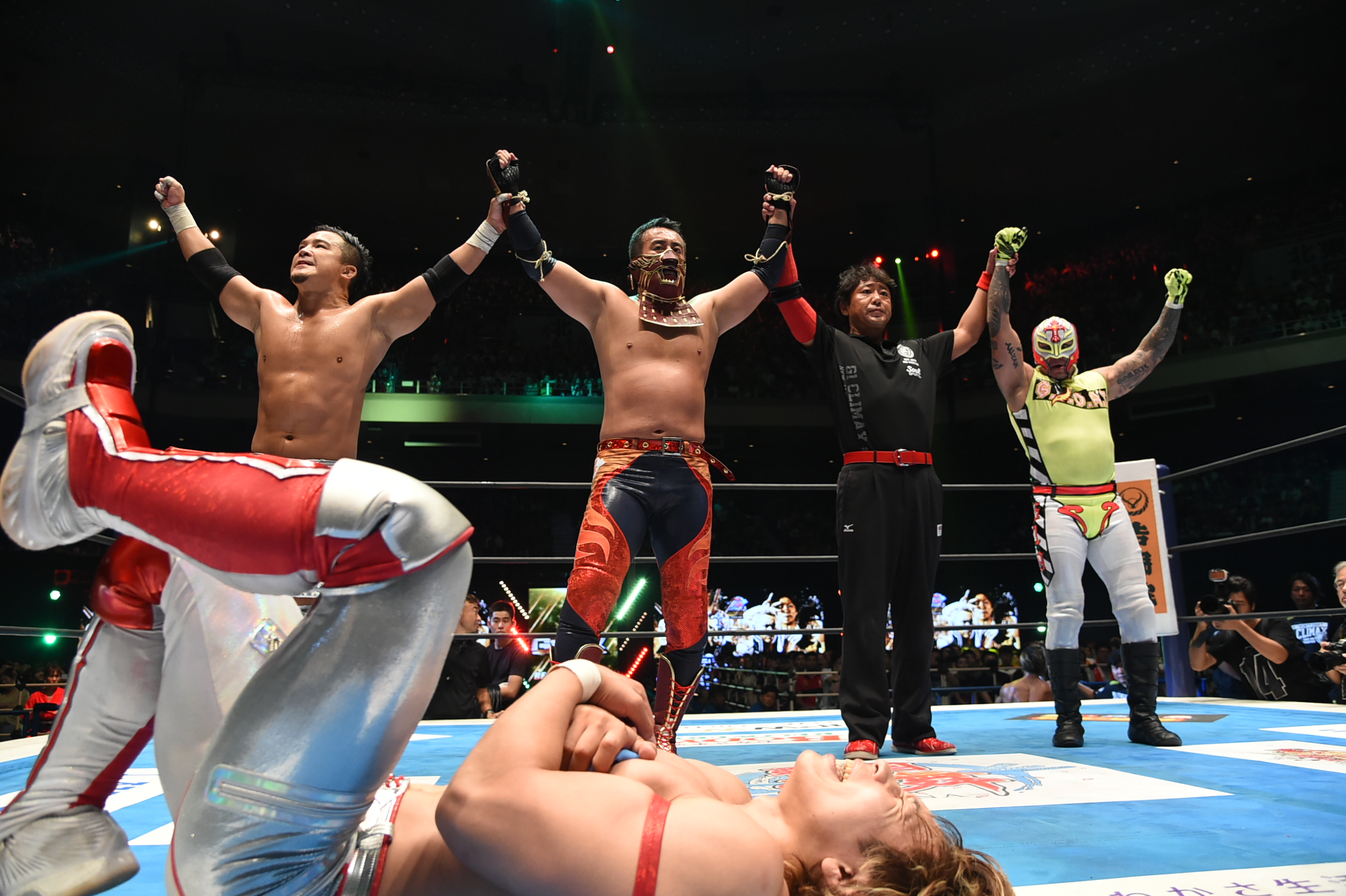
TOKYO, JAPAN - AUGUST 12: KUSHIDA, Engoku Enbu and Rey Mysterio Jr. celebrate his side's victory in the the 6-man tag match during the New Japan Pro-Wrestling G1 Climax 28 at Nippon Budokan on August 12, 2018 in Tokyo, Japan. (Photo by New Japan Pro-Wrestling/Getty Images)
-
NJPW G1 Climax Finals
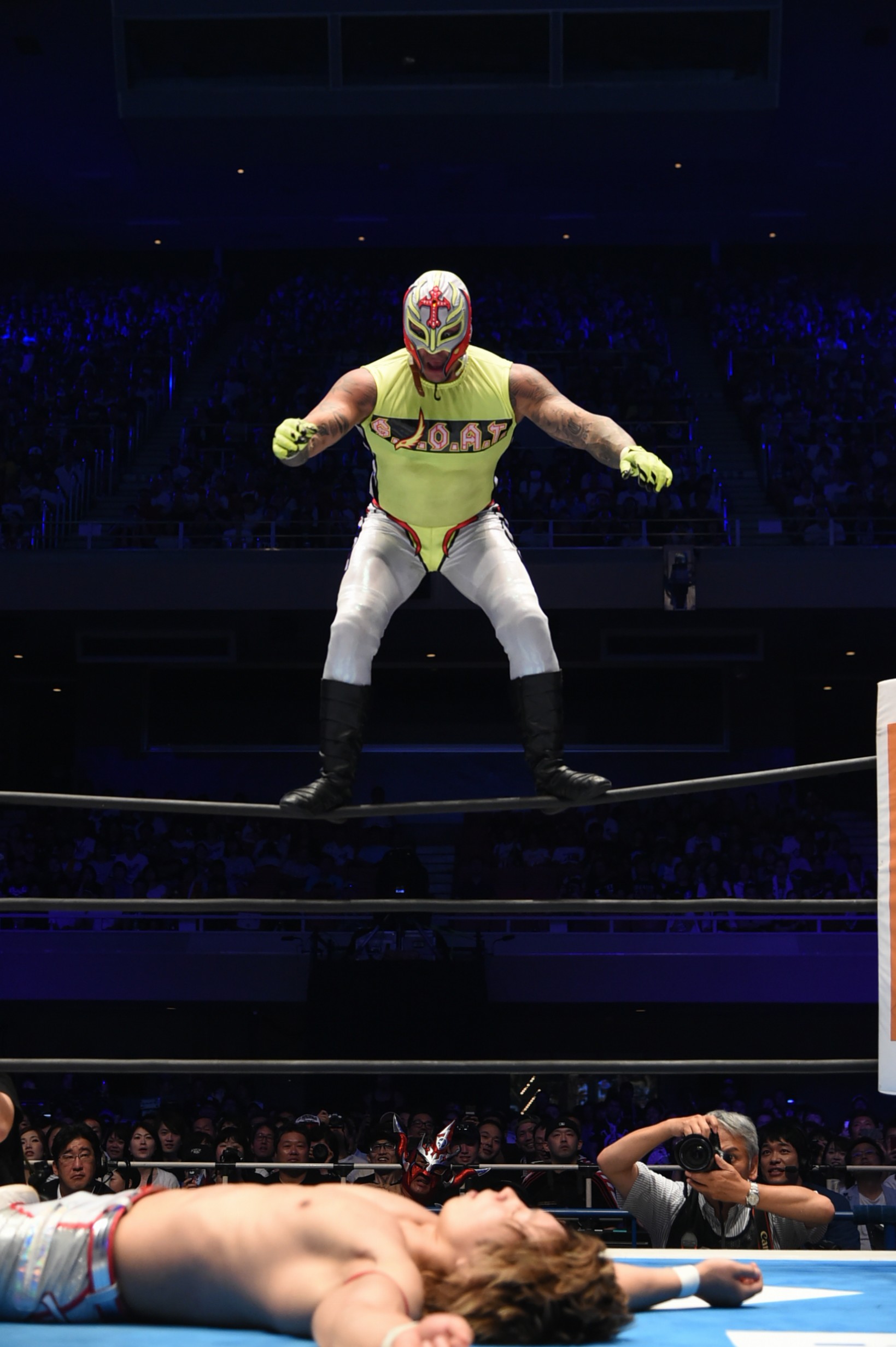
TOKYO, JAPAN - AUGUST 12: Rey Mysterio Jr. dives on Yoh to win by a fall in the the 6-man tag match during the New Japan Pro-Wrestling G1 Climax 28 at Nippon Budokan on August 12, 2018 in Tokyo, Japan. (Photo by New Japan Pro-Wrestling/Getty Images)
-
NJPW G1 Climax Finals
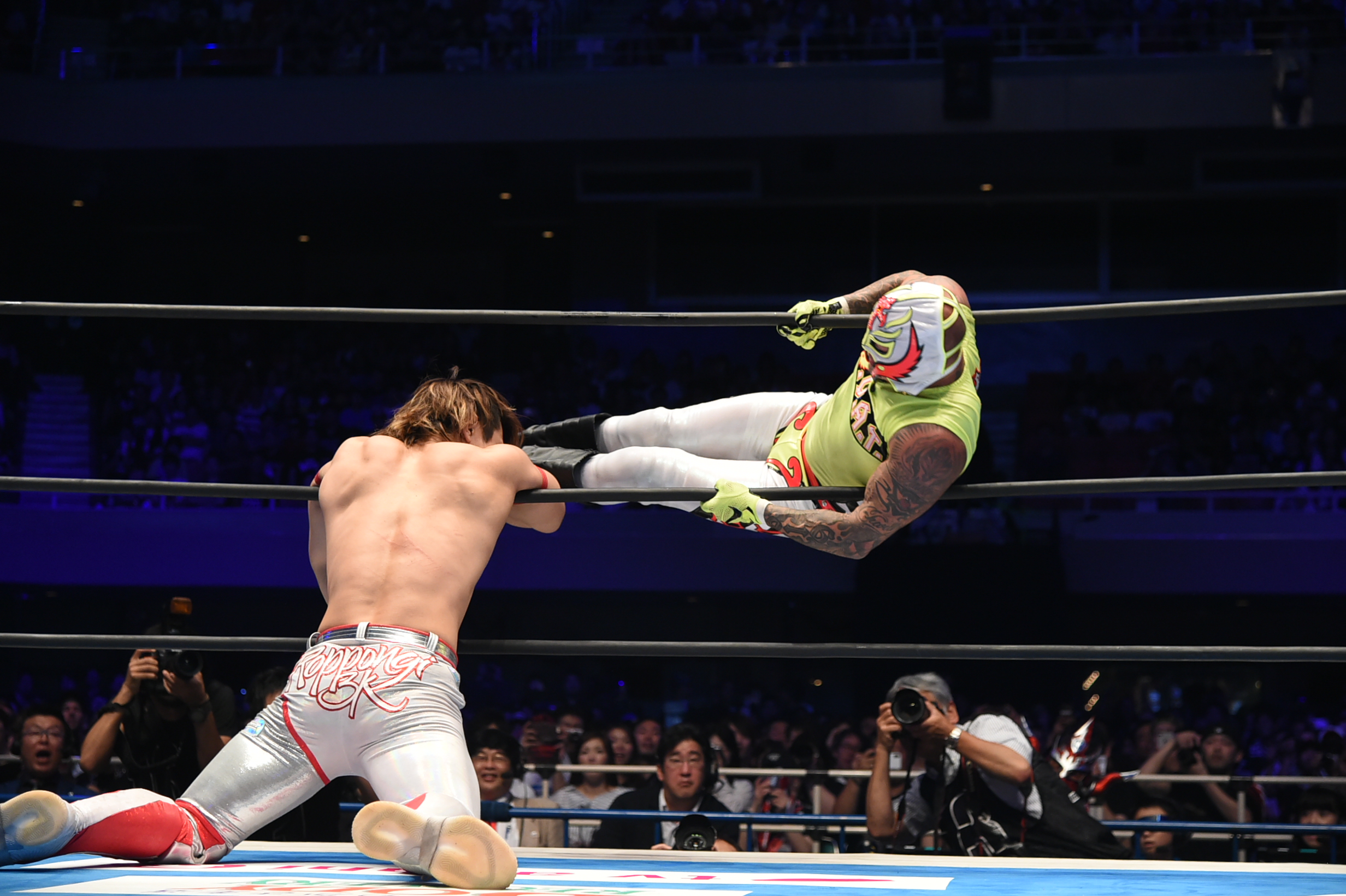
TOKYO, JAPAN - AUGUST 12: Rey Mysterio Jr. and Yoh compete in the the 6-man tag match during the New Japan Pro-Wrestling G1 Climax 28 at Nippon Budokan on August 12, 2018 in Tokyo, Japan. (Photo by New Japan Pro-Wrestling/Getty Images)
-
NJPW G1 Climax Finals
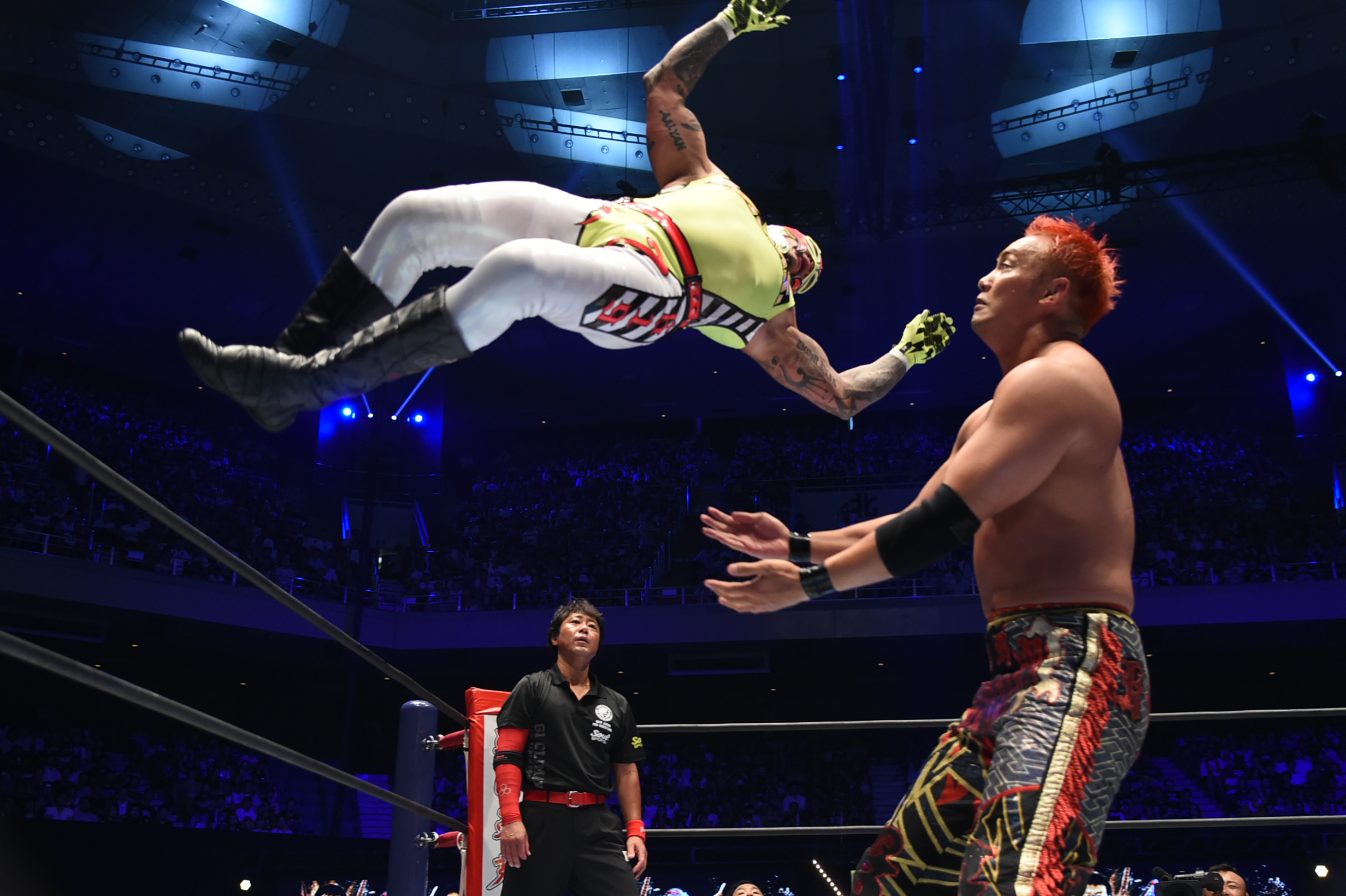
TOKYO, JAPAN - AUGUST 12: Rey Mysterio Jr. and Kazuchika Okada compete in the the 6-man tag match during the New Japan Pro-Wrestling G1 Climax 28 at Nippon Budokan on August 12, 2018 in Tokyo, Japan. (Photo by New Japan Pro-Wrestling/Getty Images)
-
NJPW G1 Climax Finals
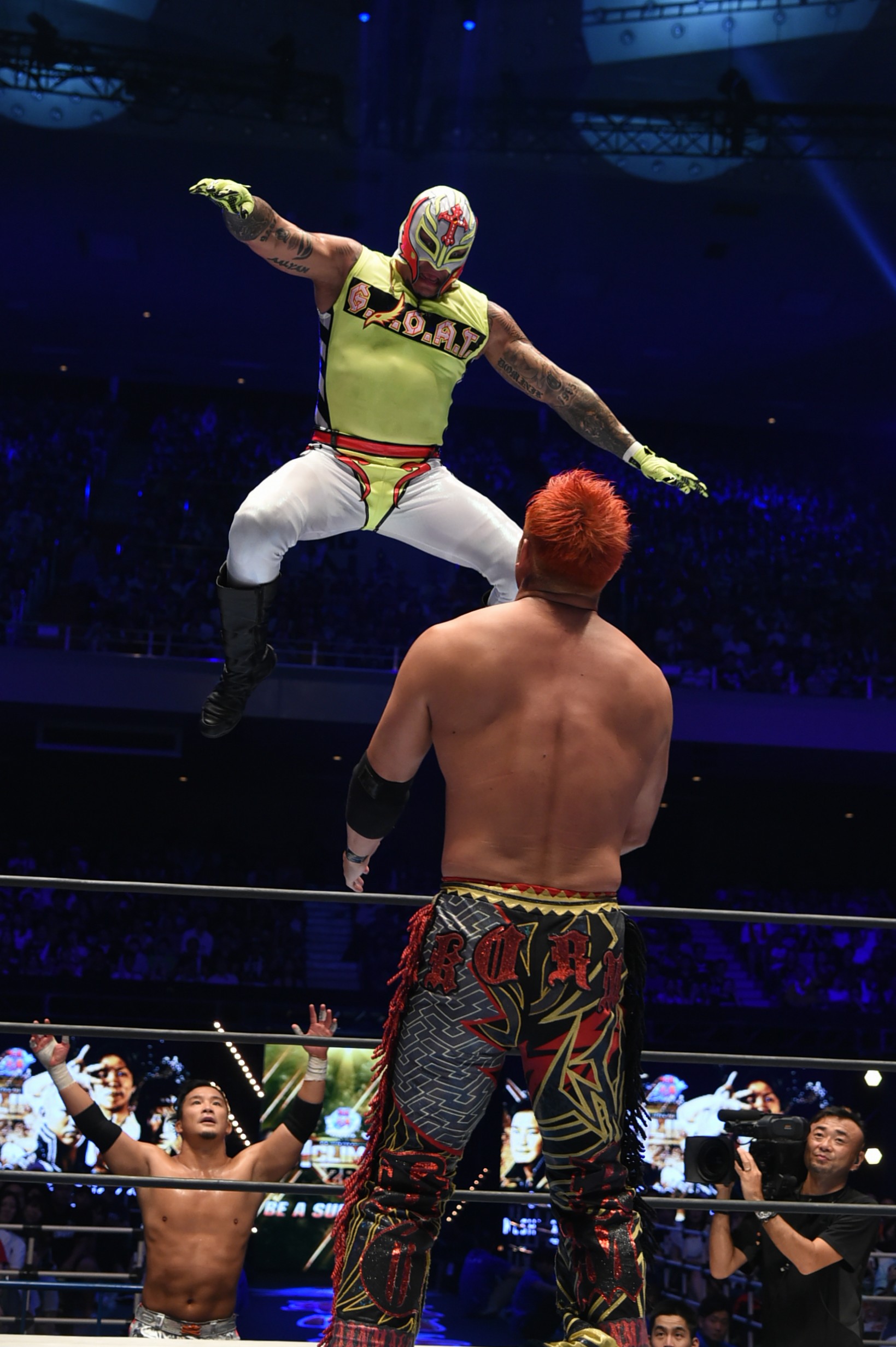
TOKYO, JAPAN - AUGUST 12: Rey Mysterio Jr. and Kazuchika Okada compete in the the 6-man tag match during the New Japan Pro-Wrestling G1 Climax 28 at Nippon Budokan on August 12, 2018 in Tokyo, Japan. (Photo by New Japan Pro-Wrestling/Getty Images)
-
NJPW G1 Climax Finals
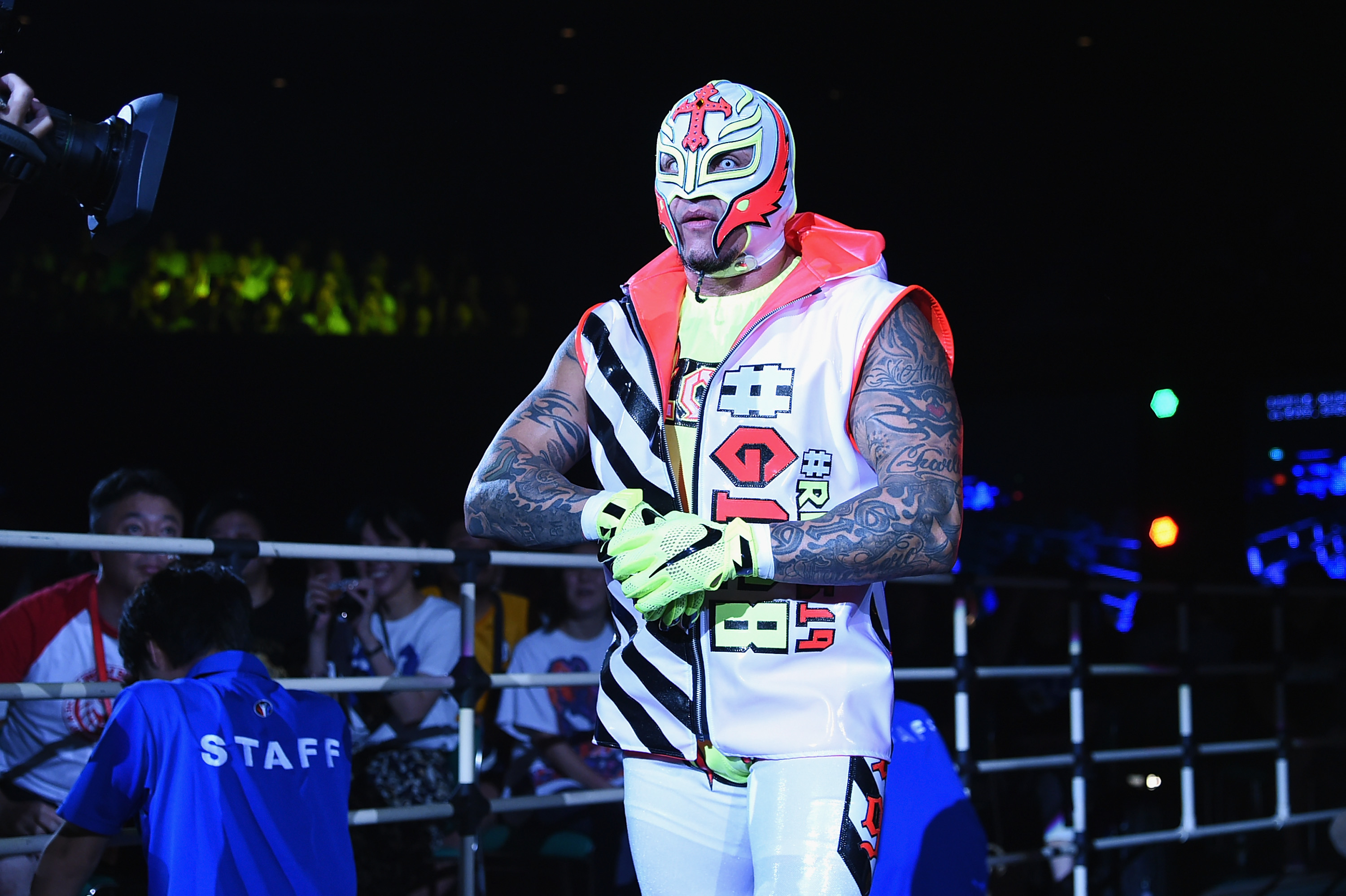
TOKYO, JAPAN - AUGUST 12: Rey Mysterio Jr. appears on the ring prior to the the 6-man tag match during the New Japan Pro-Wrestling G1 Climax 28 at Nippon Budokan on August 12, 2018 in Tokyo, Japan. (Photo by New Japan Pro-Wrestling/Getty Images)
-
NJPW G1 Climax Finals
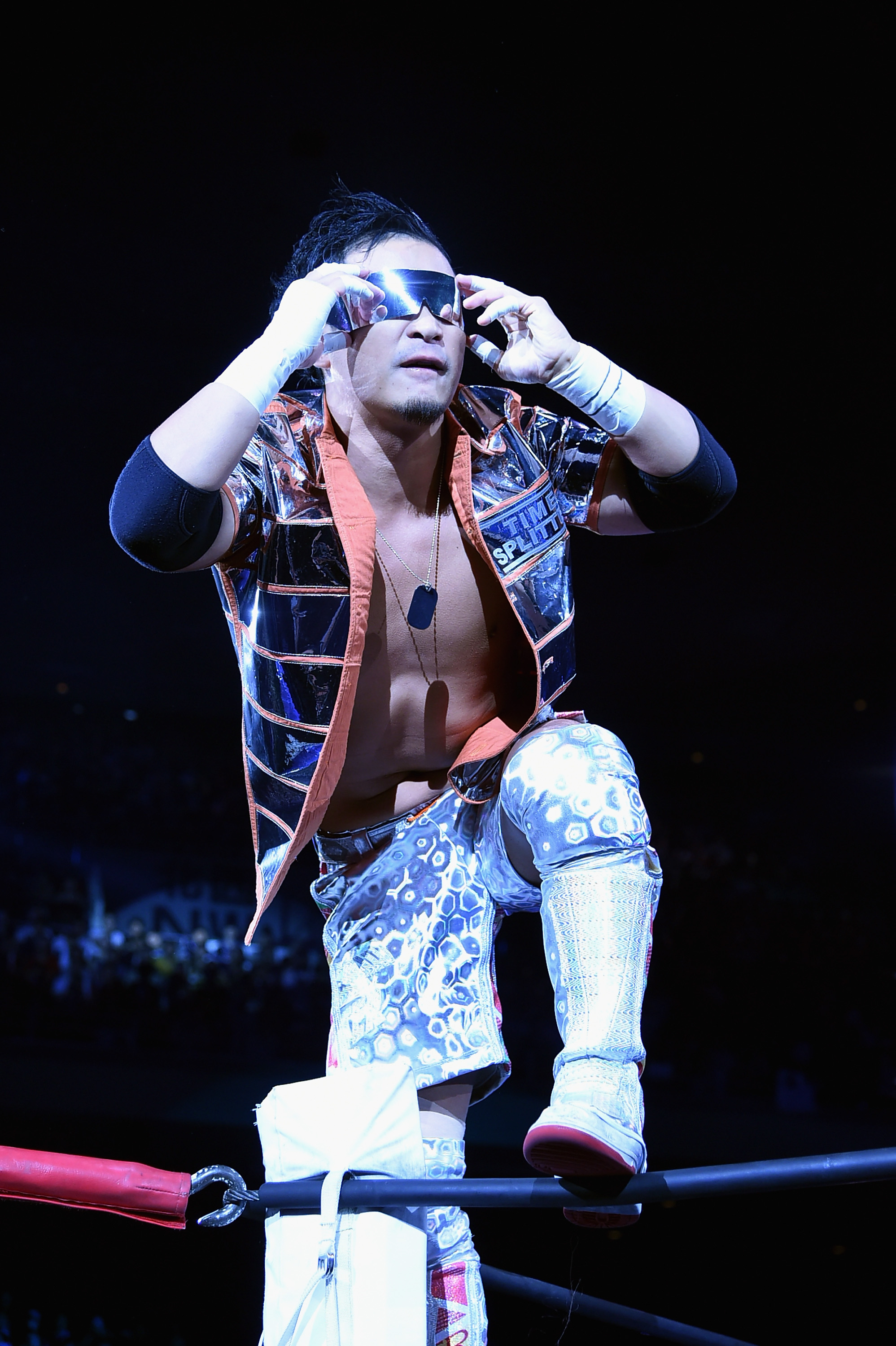
TOKYO, JAPAN - AUGUST 12: KUSHIDA appears on the ring prior to the the 6-man tag match during the New Japan Pro-Wrestling G1 Climax 28 at Nippon Budokan on August 12, 2018 in Tokyo, Japan. (Photo by New Japan Pro-Wrestling/Getty Images)
-
NJPW G1 Climax Finals
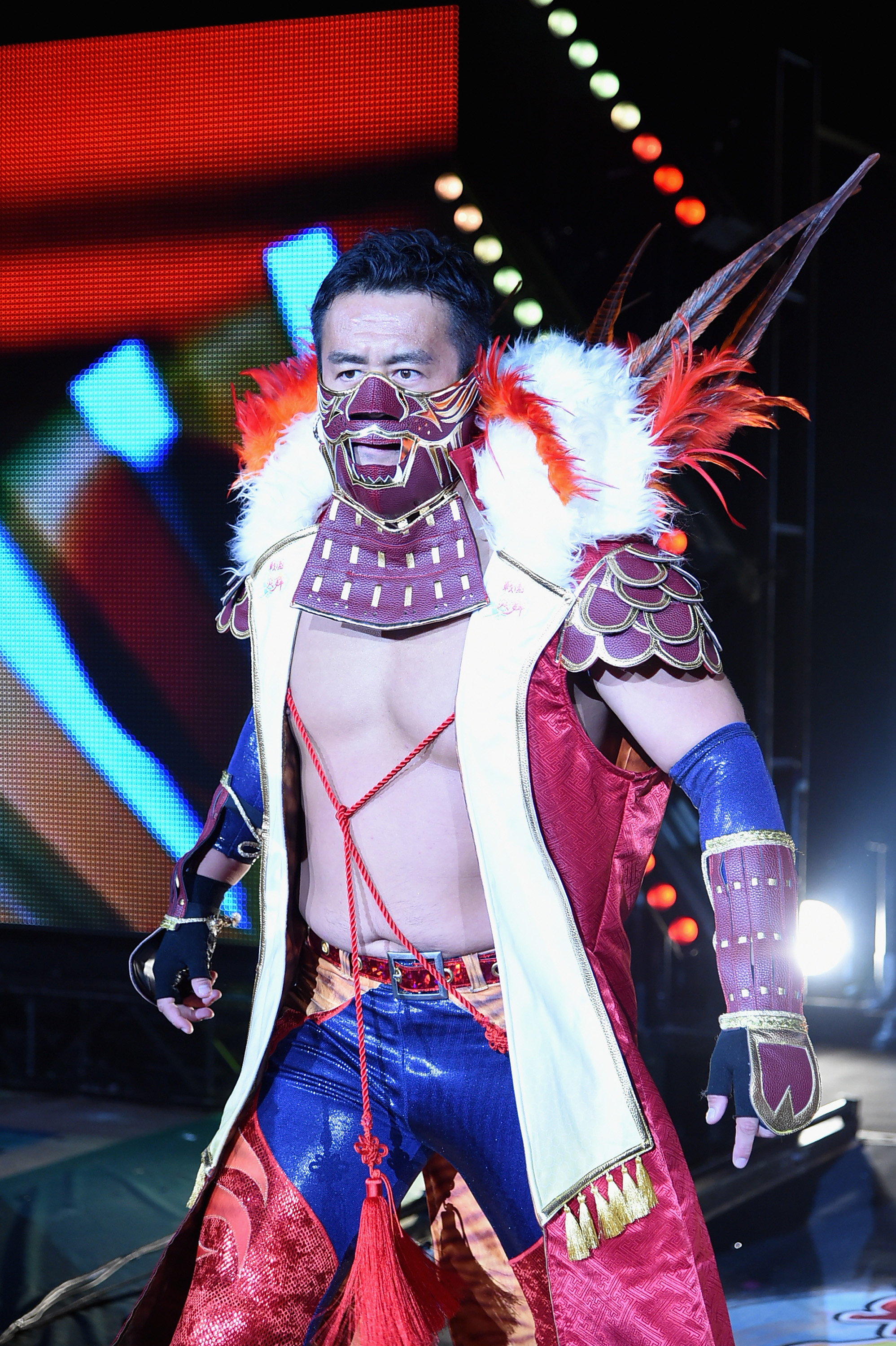
TOKYO, JAPAN - AUGUST 12: Sengoku Enbu appears prior to the the 6-man tag match during the New Japan Pro-Wrestling G1 Climax 28 at Nippon Budokan on August 12, 2018 in Tokyo, Japan. (Photo by New Japan Pro-Wrestling/Getty Images)
-
NJPW G1 Climax Finals
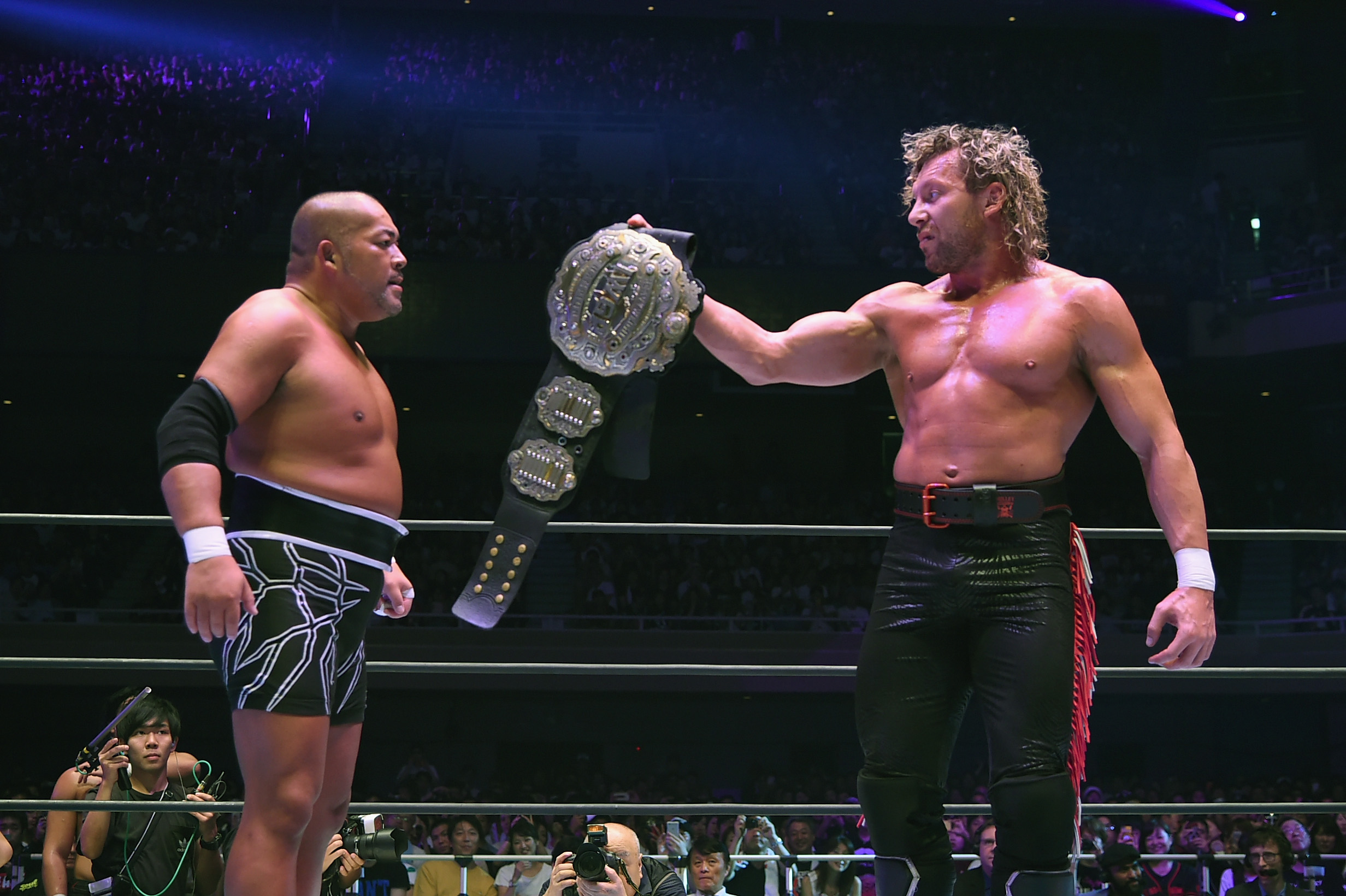
TOKYO, JAPAN - AUGUST 12: Kenny Omega (R) and Tomohiro Ishii (L) square off after the 6-man tag match during the New Japan Pro-Wrestling G1 Climax 28 at Nippon Budokan on August 12, 2018 in Tokyo, Japan. (Photo by New Japan Pro-Wrestling/Getty Images)
-
NJPW G1 Climax Finals
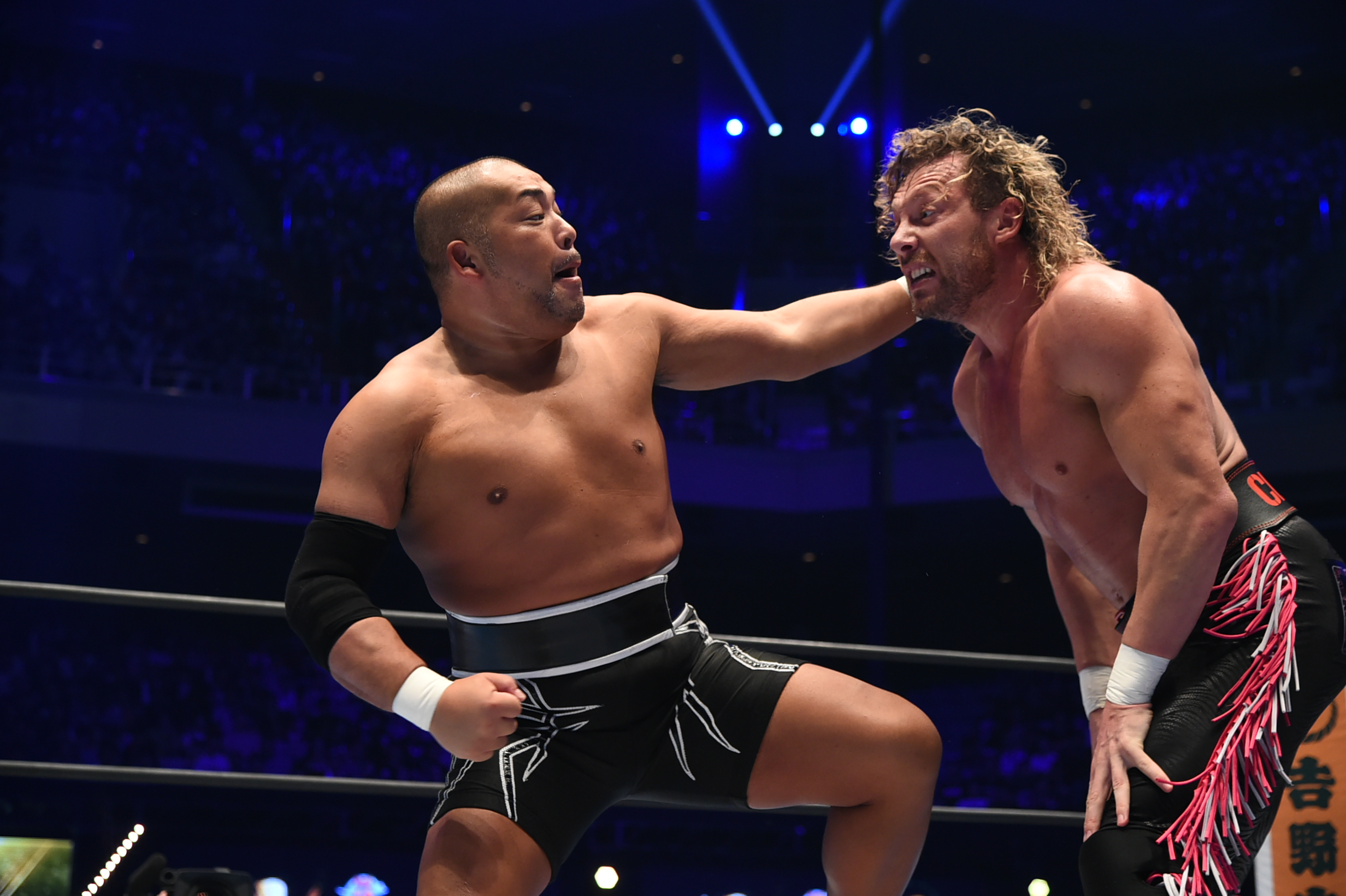
TOKYO, JAPAN - AUGUST 12: Kenny Omega (R) and Tomohiro Ishii (L) compete in the 6-man tag match during the New Japan Pro-Wrestling G1 Climax 28 at Nippon Budokan on August 12, 2018 in Tokyo, Japan. (Photo by New Japan Pro-Wrestling/Getty Images)
-
NJPW G1 Climax Finals
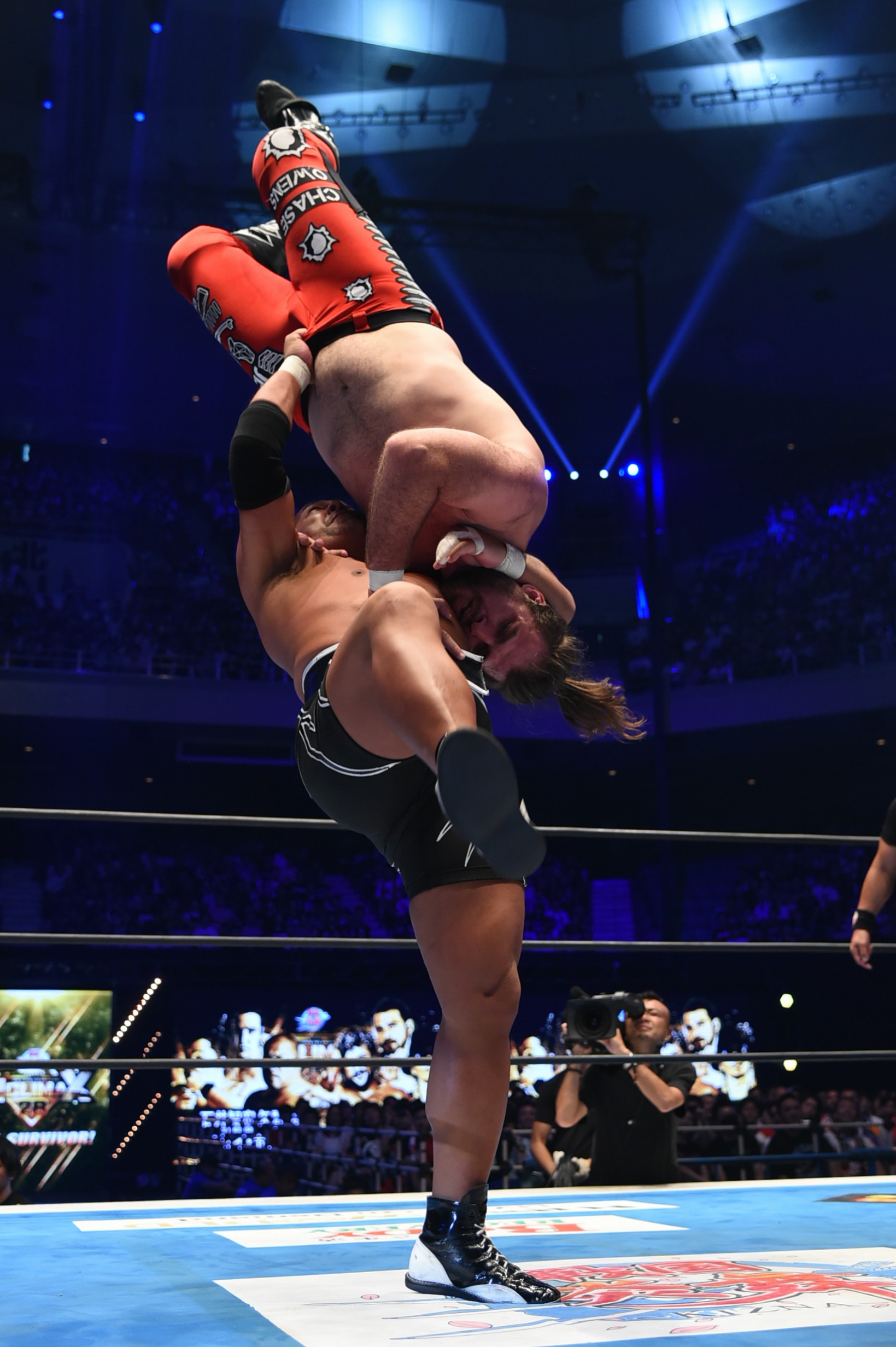
TOKYO, JAPAN - AUGUST 12: Chase Owens (R) and Tomohiro Ishii (L) compete in the six-man tag match during the New Japan Pro-Wrestling G1 Climax 28 at Nippon Budokan on August 12, 2018 in Tokyo, Japan. (Photo by New Japan Pro-Wrestling/Getty Images)
-
NJPW G1 Climax Finals
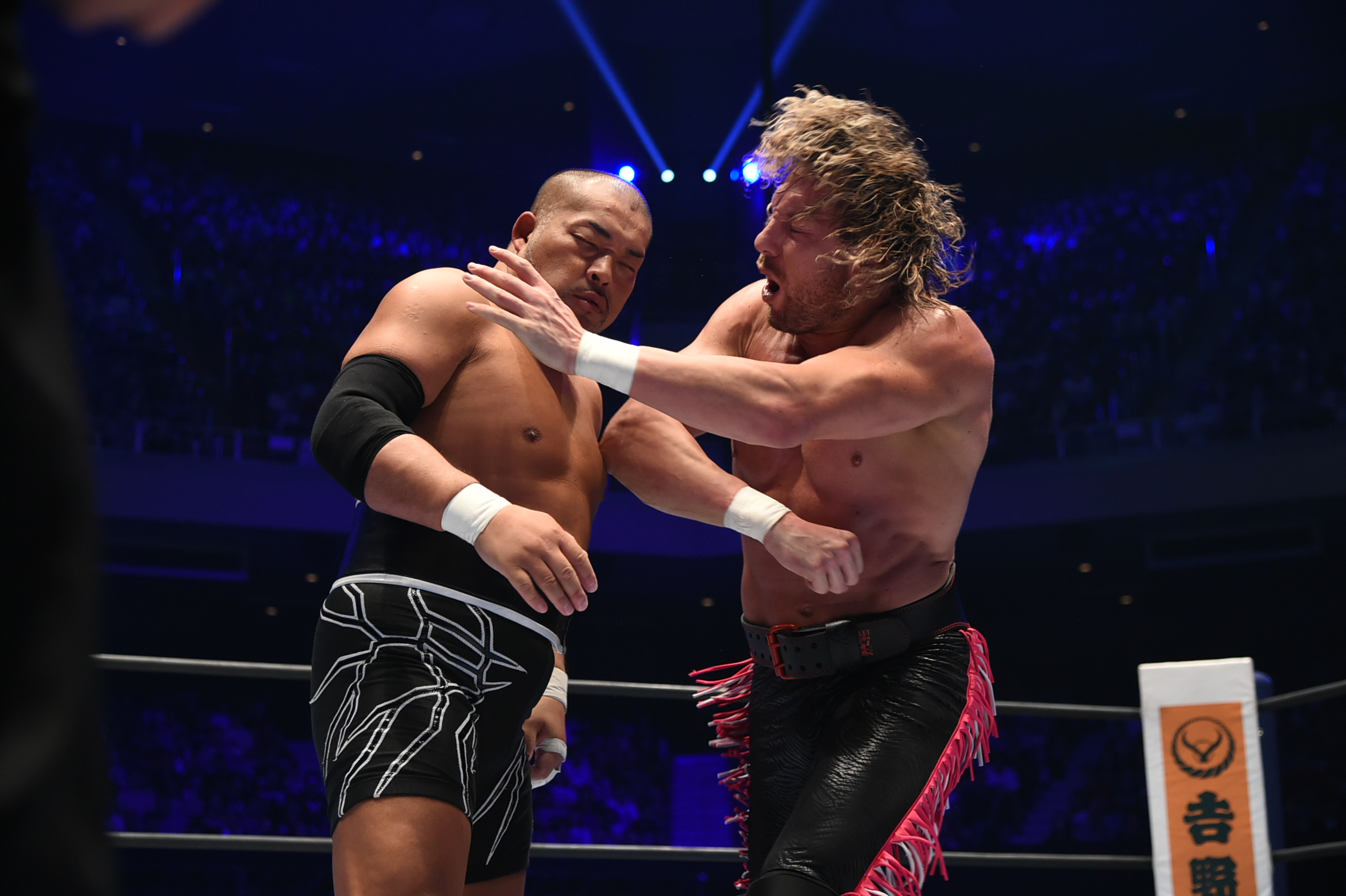
TOKYO, JAPAN - AUGUST 12: Kenny Omega (R) and Tomohiro Ishii (L) compete in the 6-man tag match during the New Japan Pro-Wrestling G1 Climax 28 at Nippon Budokan on August 12, 2018 in Tokyo, Japan. (Photo by New Japan Pro-Wrestling/Getty Images)
-
NJPW G1 Climax Finals
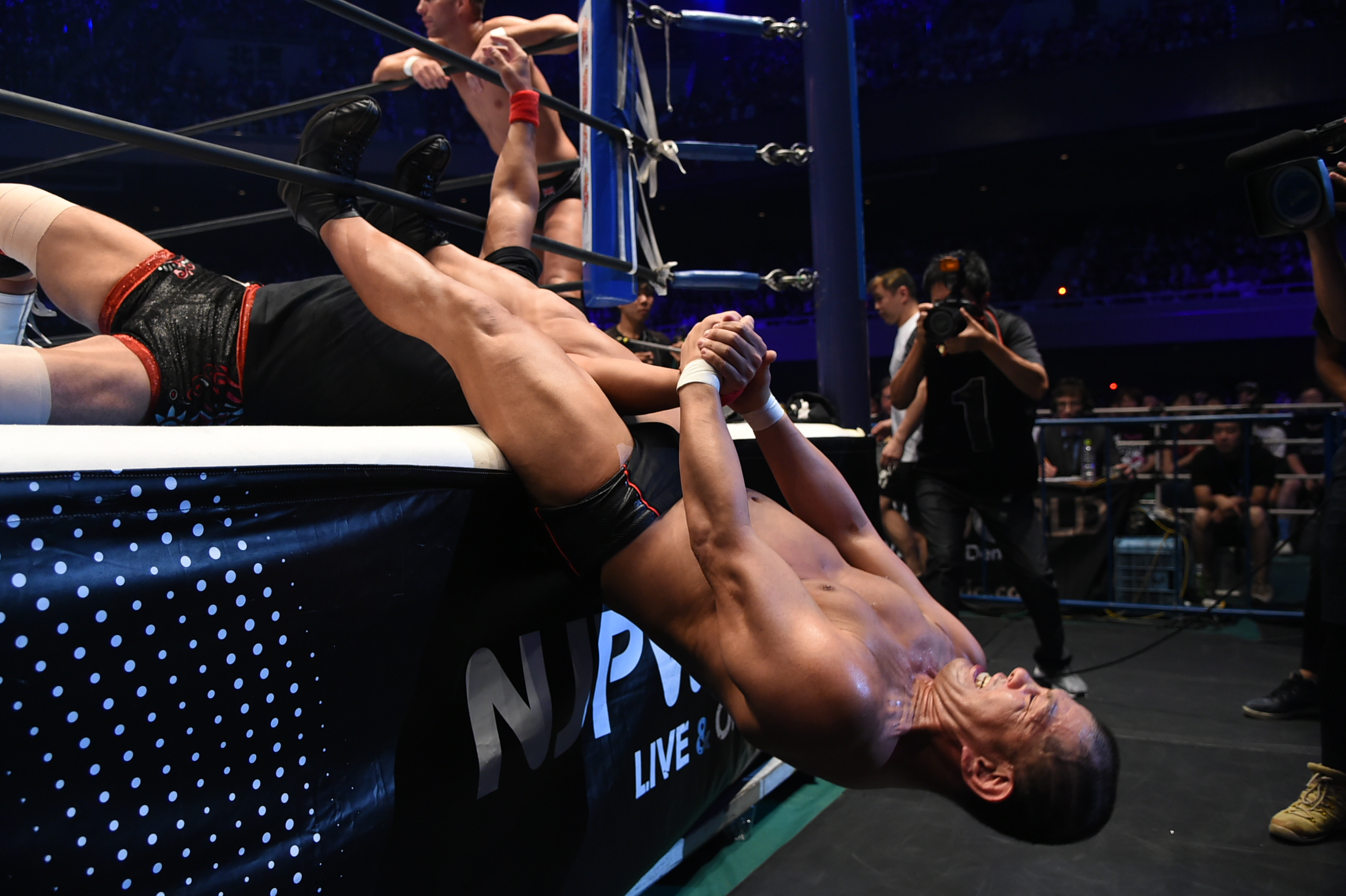
TOKYO, JAPAN - AUGUST 12: Tetsuya Naito (L) and Minoru Suzuki (R) compete in the 8-man tag team match during the New Japan Pro-Wrestling G1 Climax 28 at Nippon Budokan on August 12, 2018 in Tokyo, Japan. (Photo by New Japan Pro-Wrestling/Getty Images)
-
NJPW G1 Climax Finals
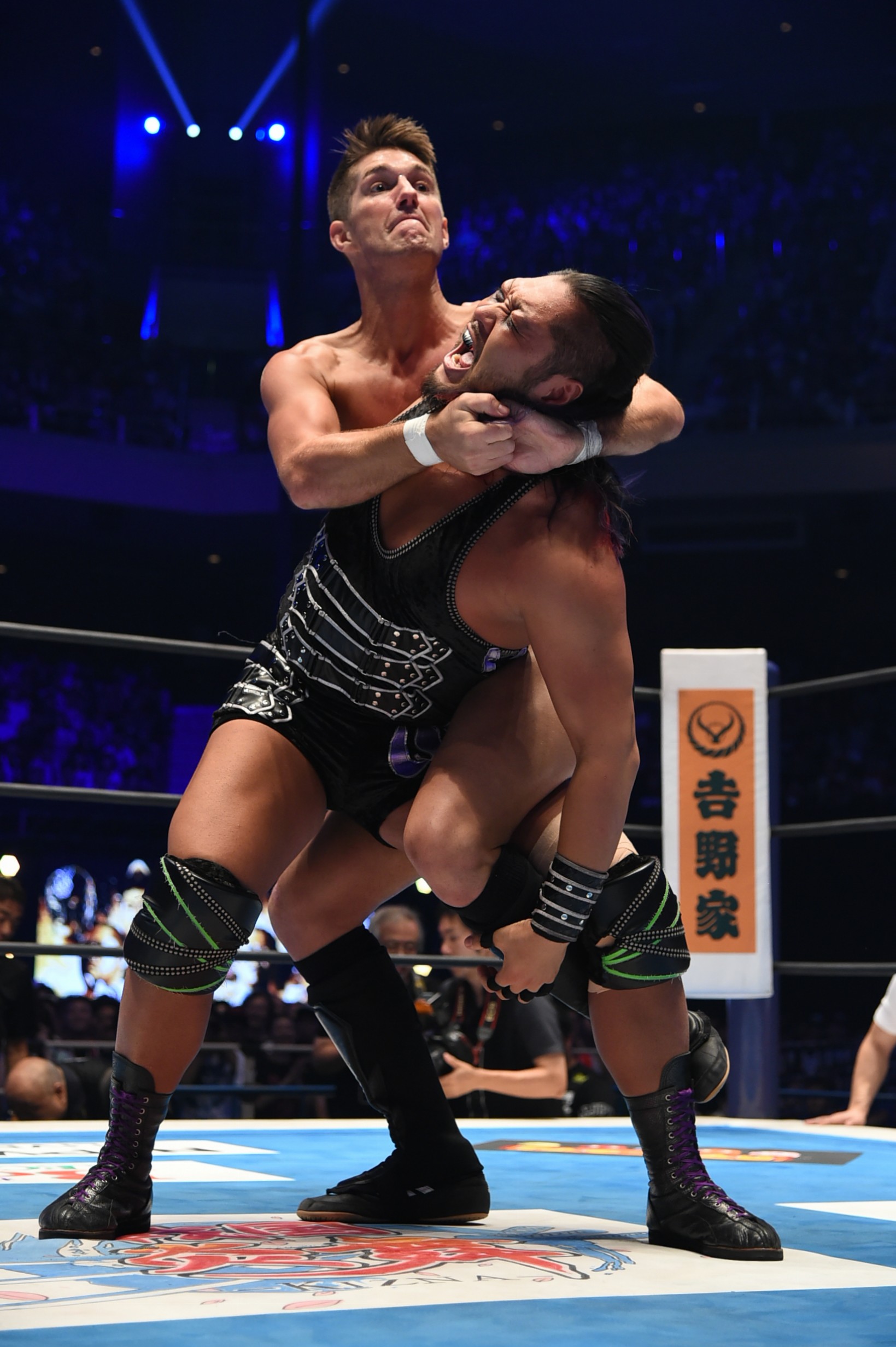
TOKYO, JAPAN - AUGUST 12: Zack Sabre Jr. and EVIL compete in the 8-man tag team match during the New Japan Pro-Wrestling G1 Climax 28 at Nippon Budokan on August 12, 2018 in Tokyo, Japan. (Photo by New Japan Pro-Wrestling/Getty Images)
